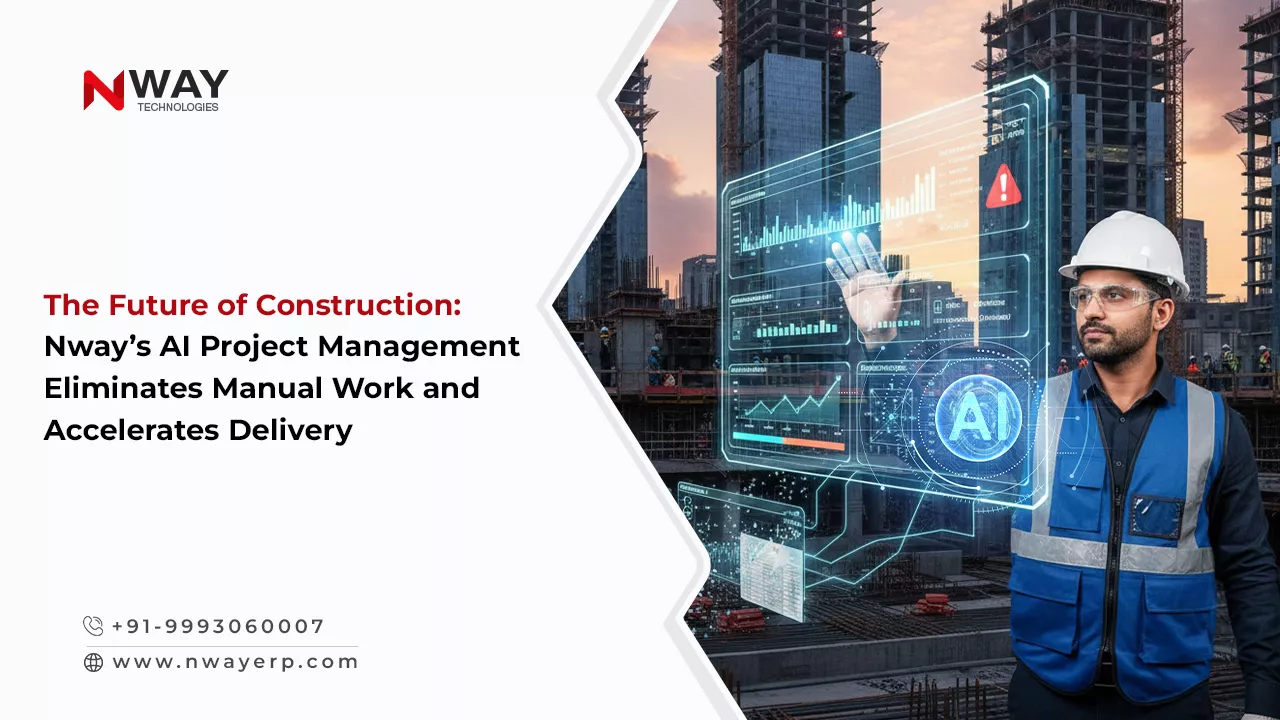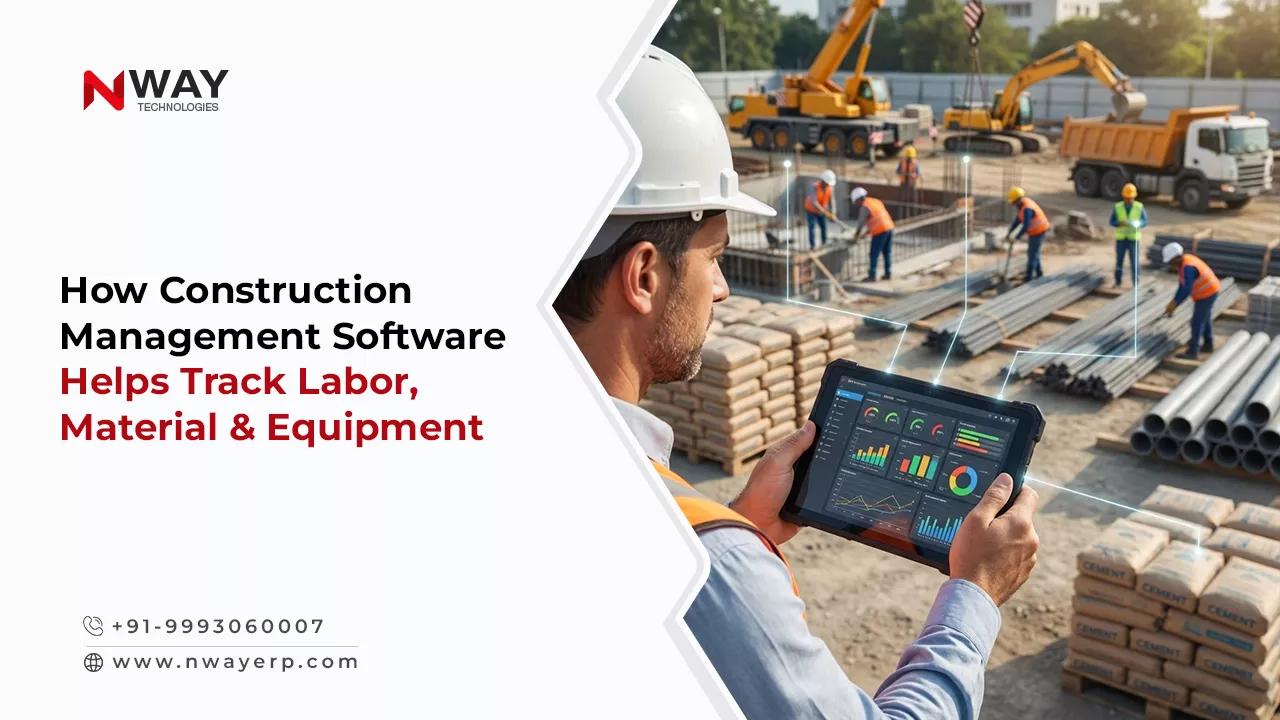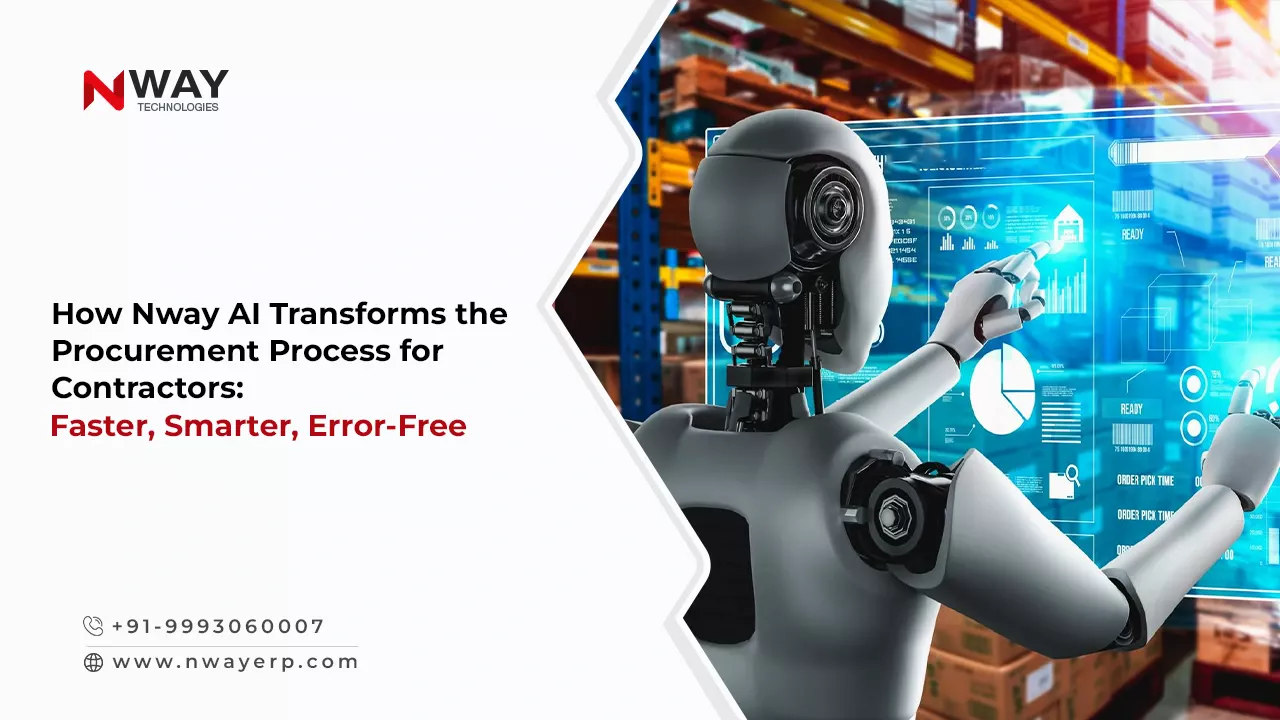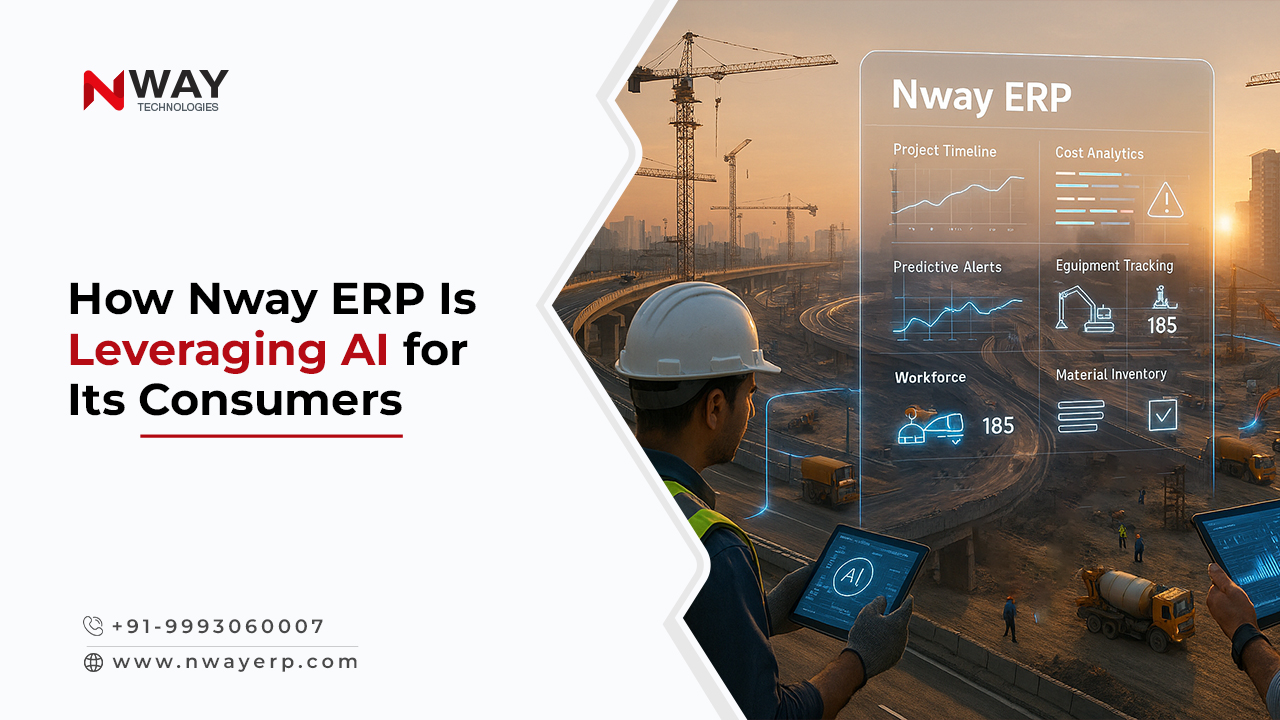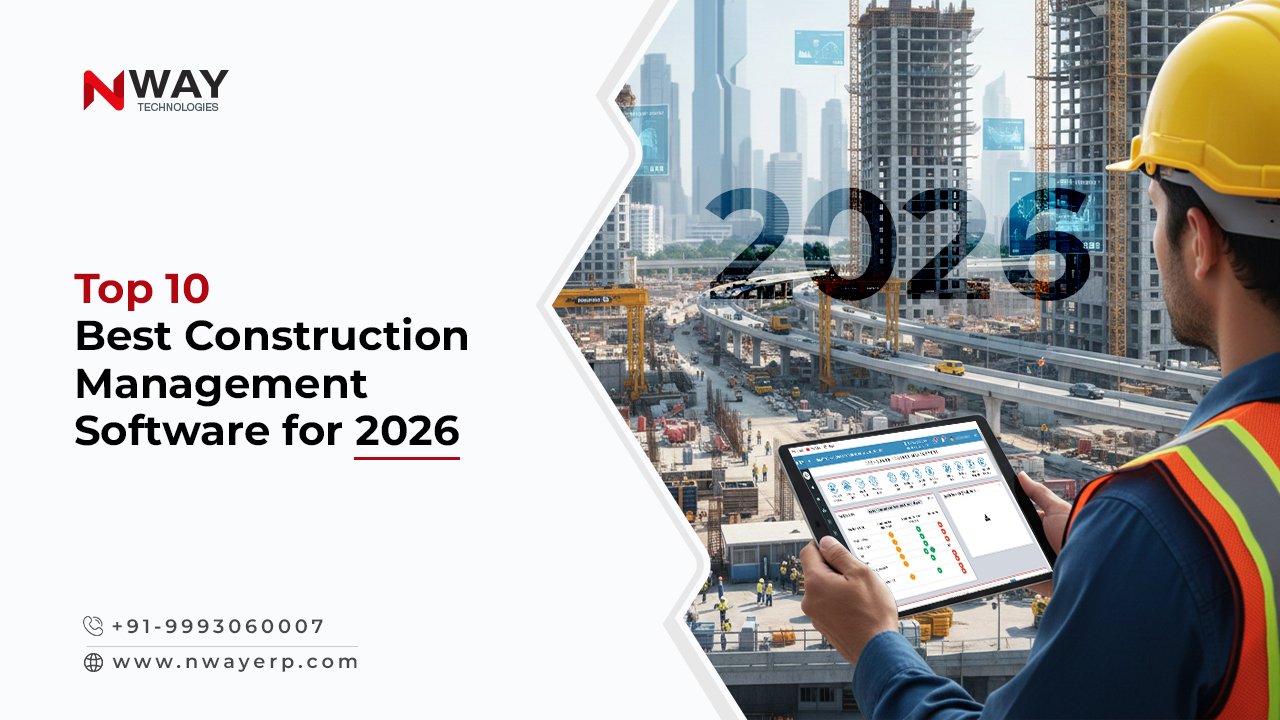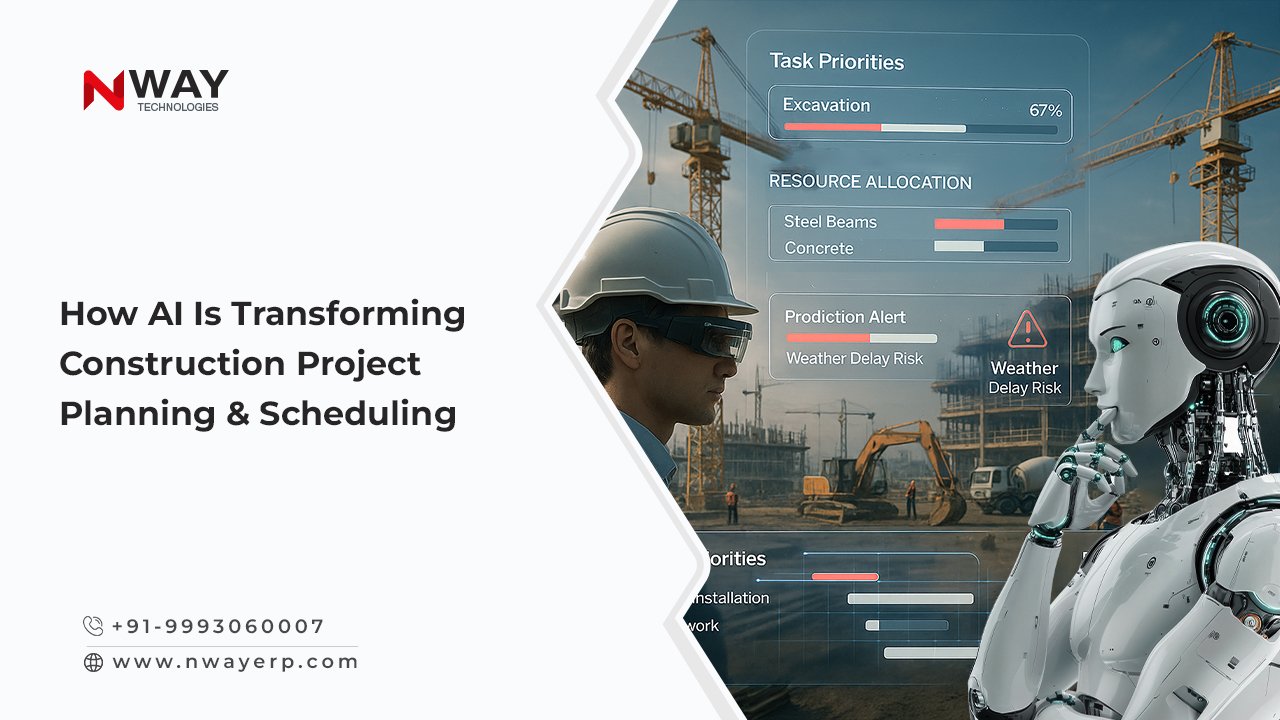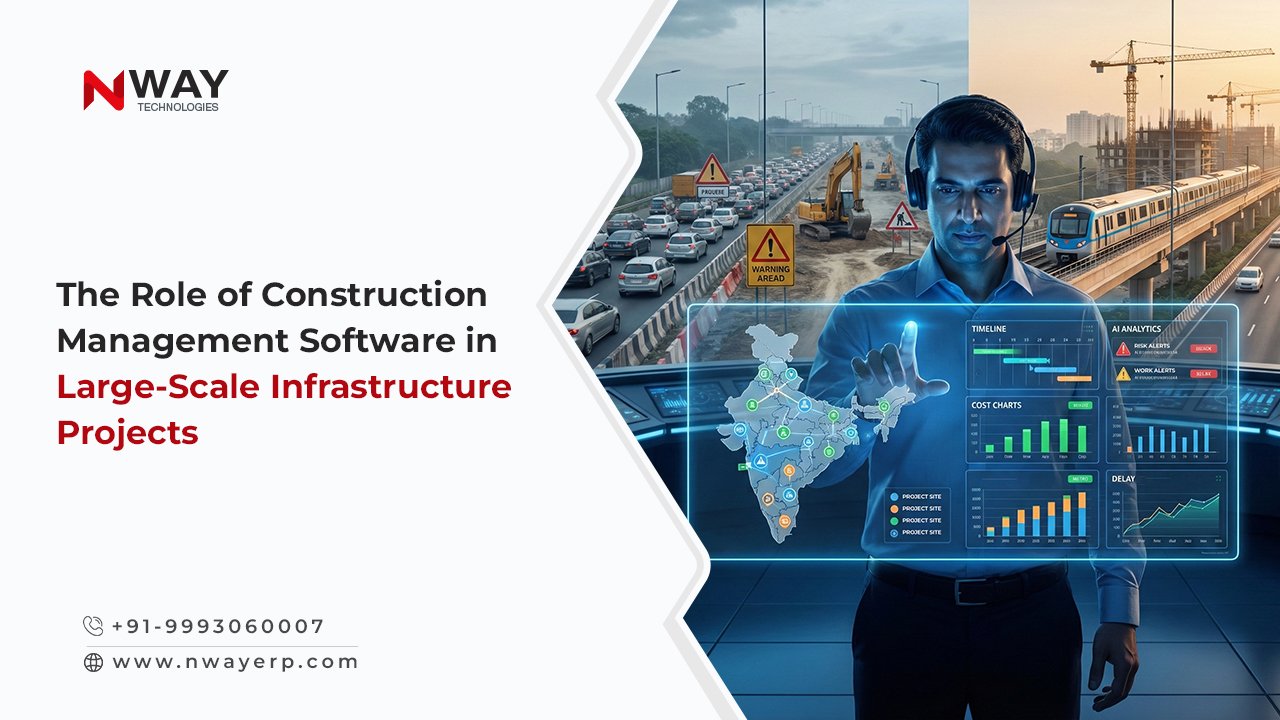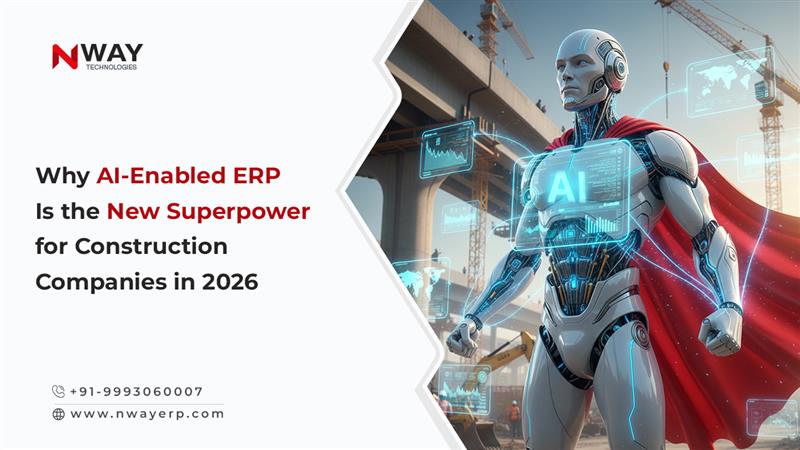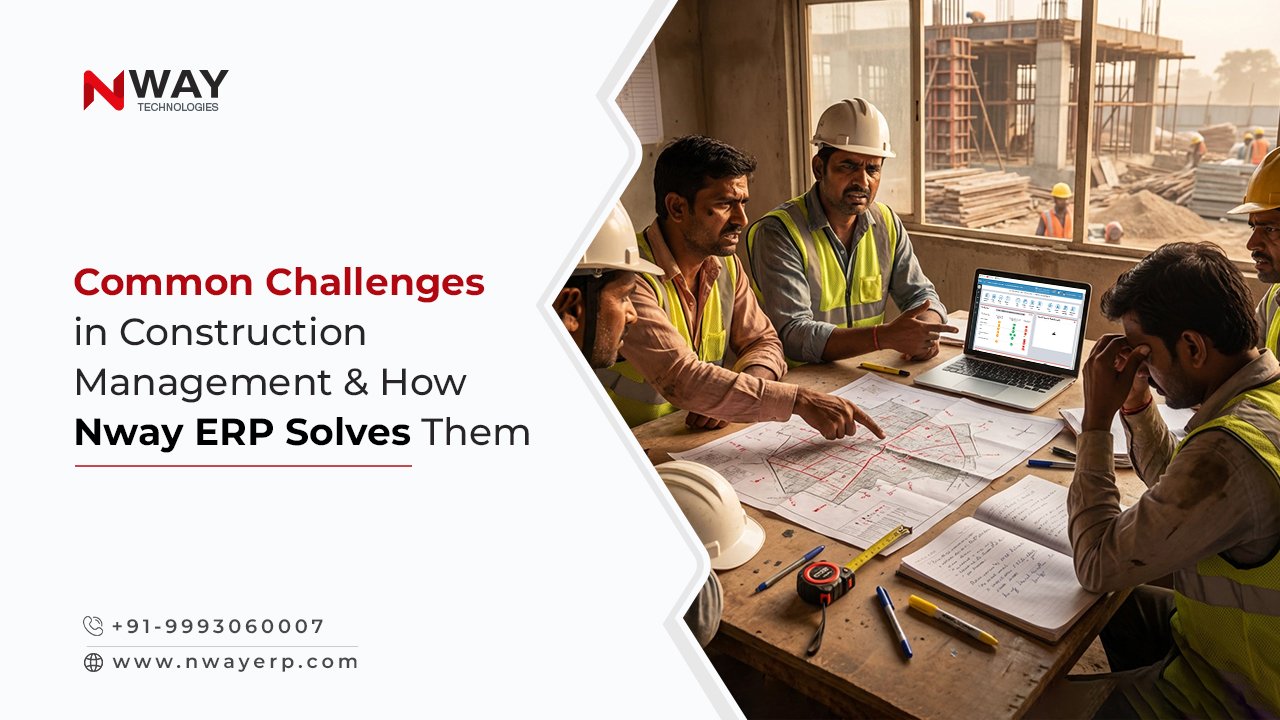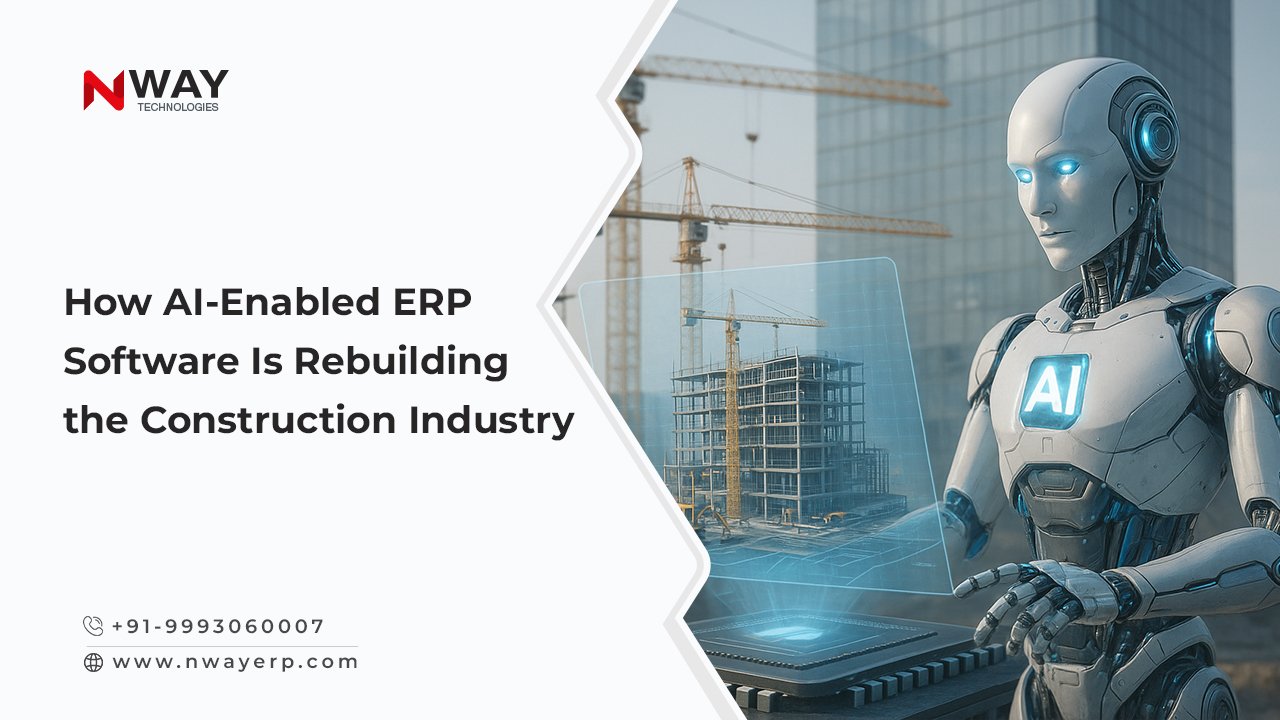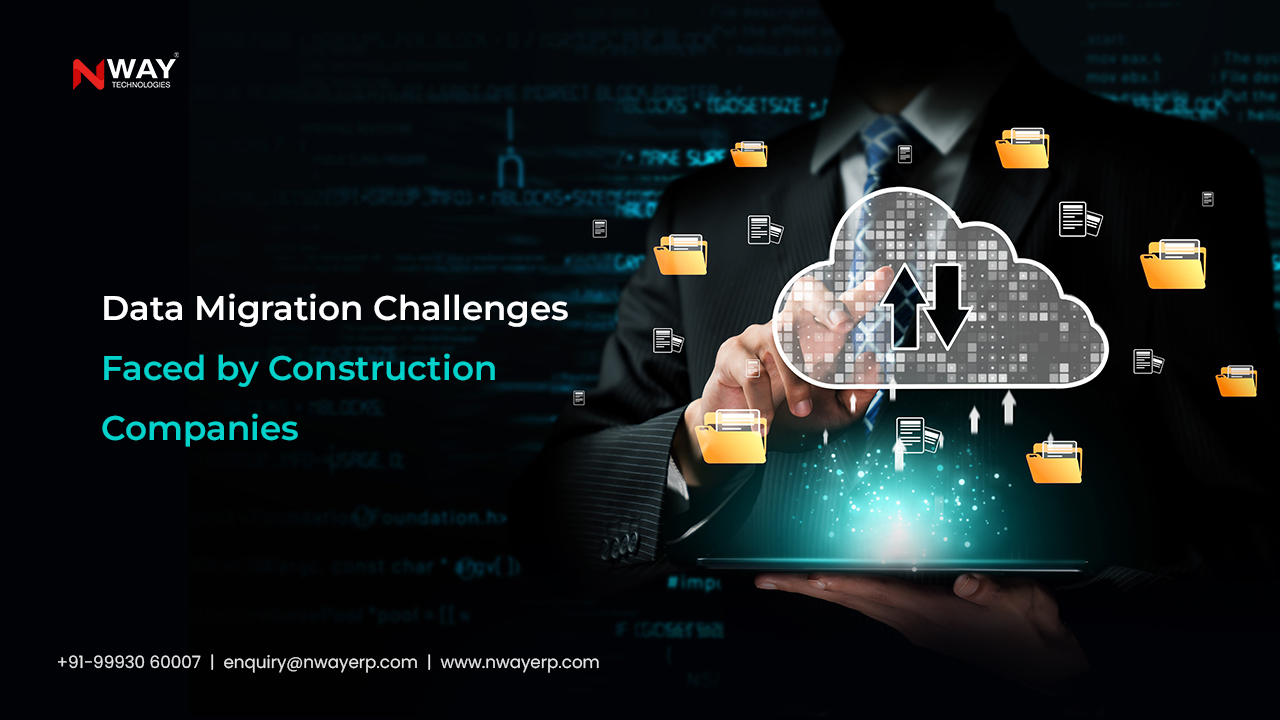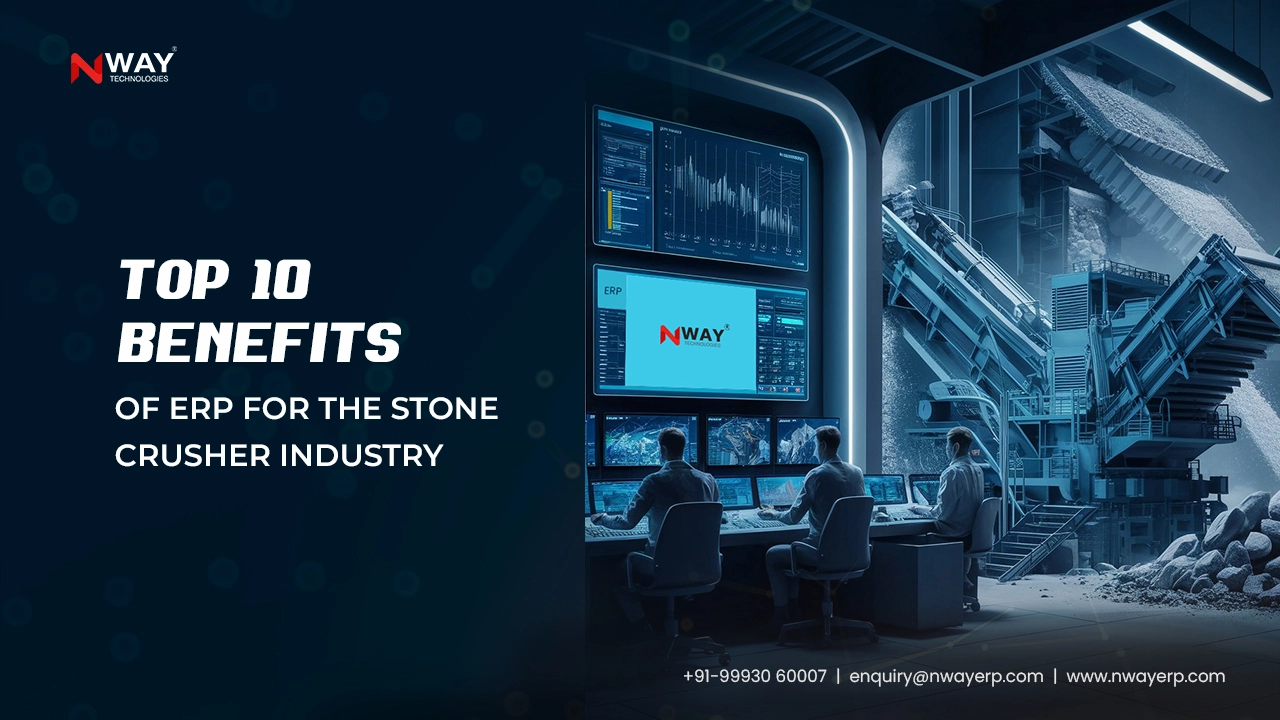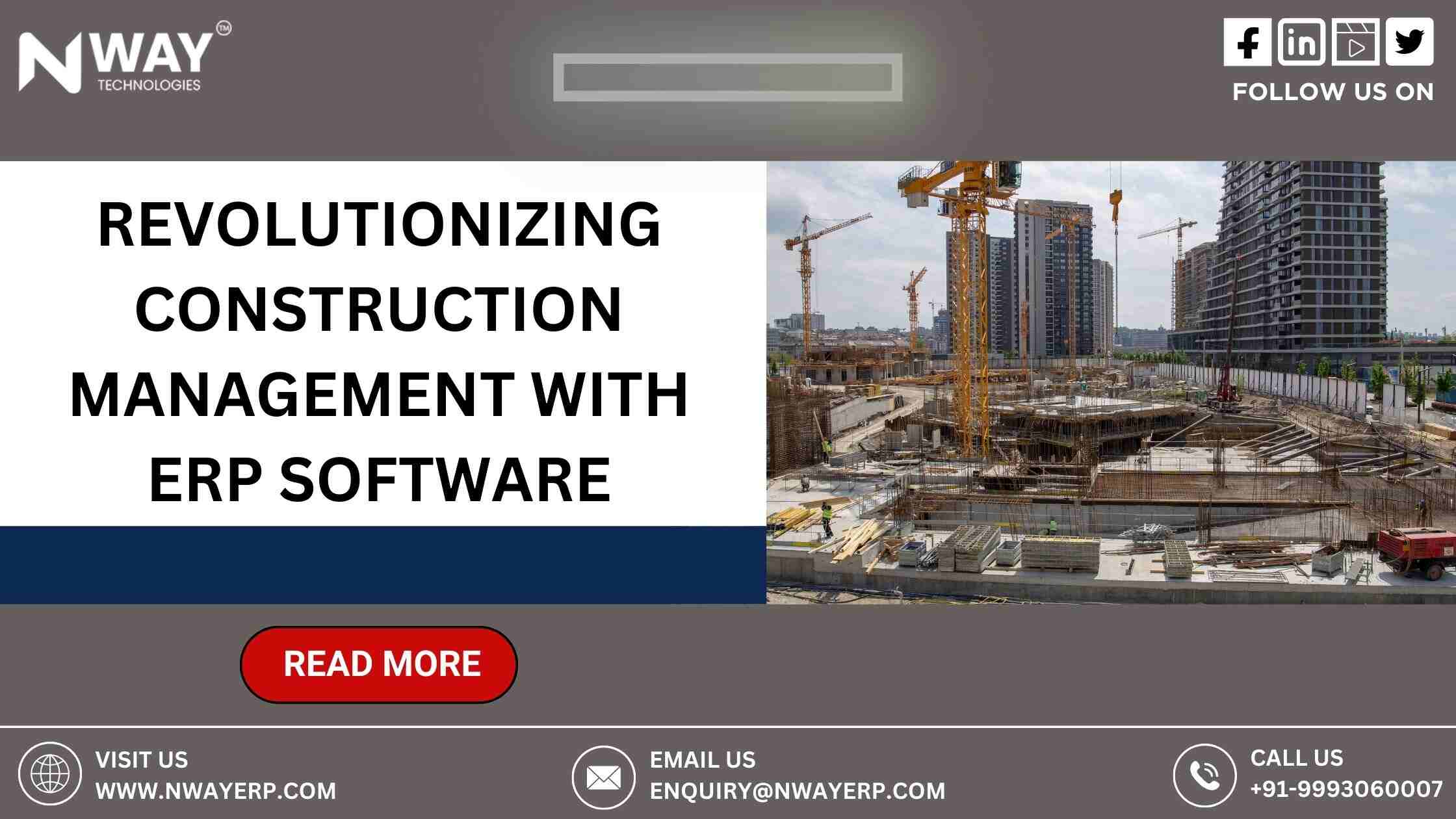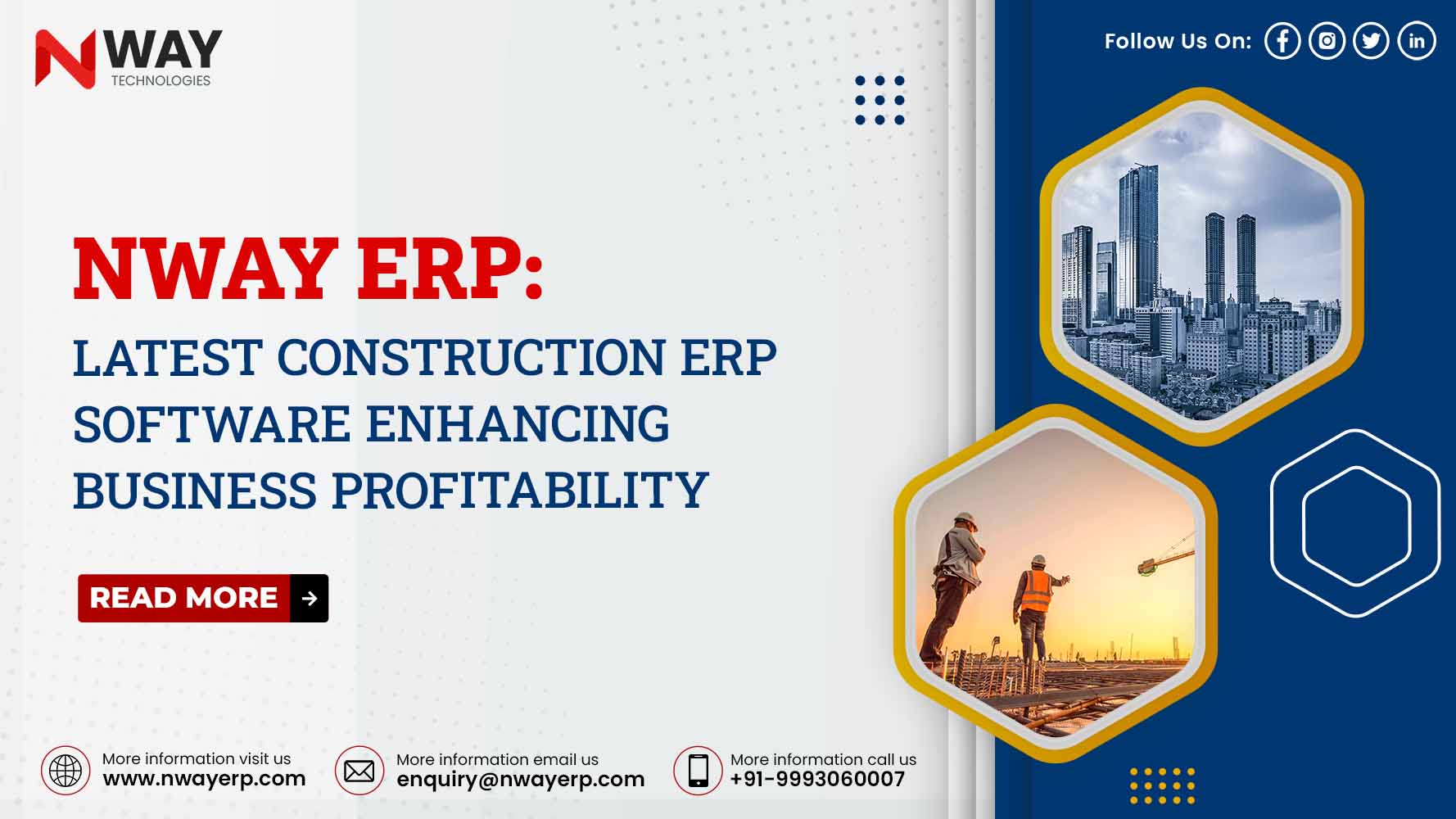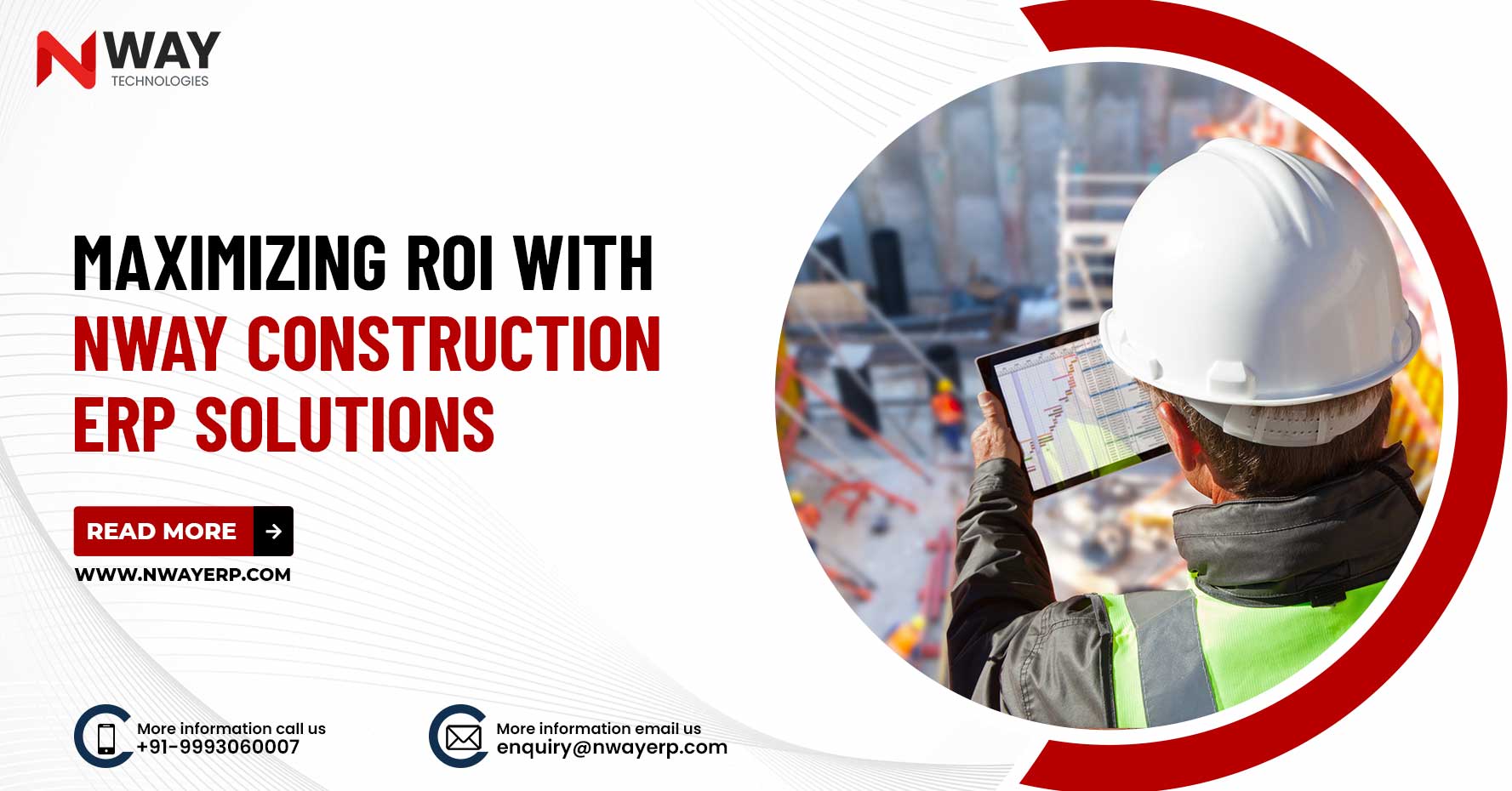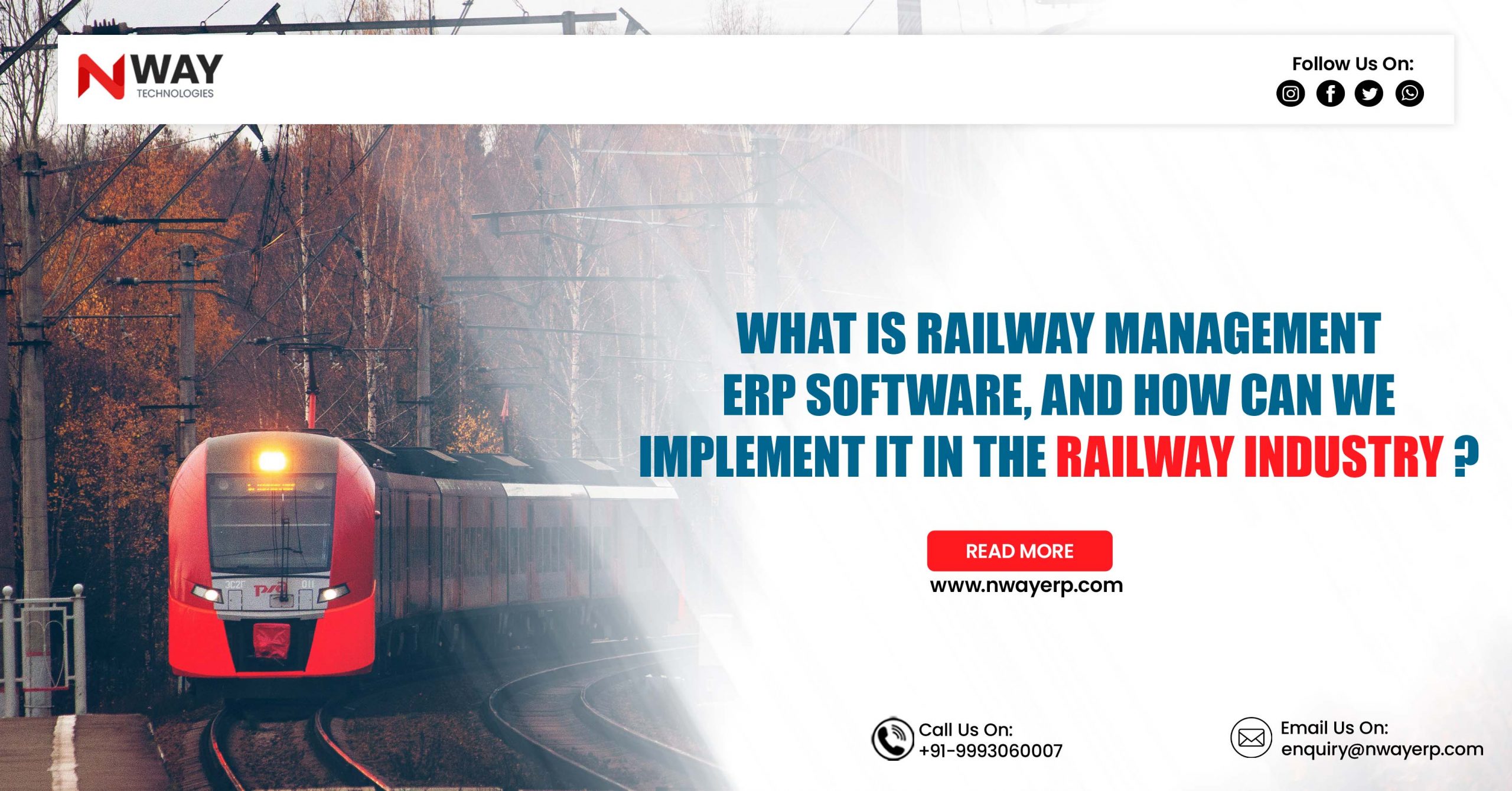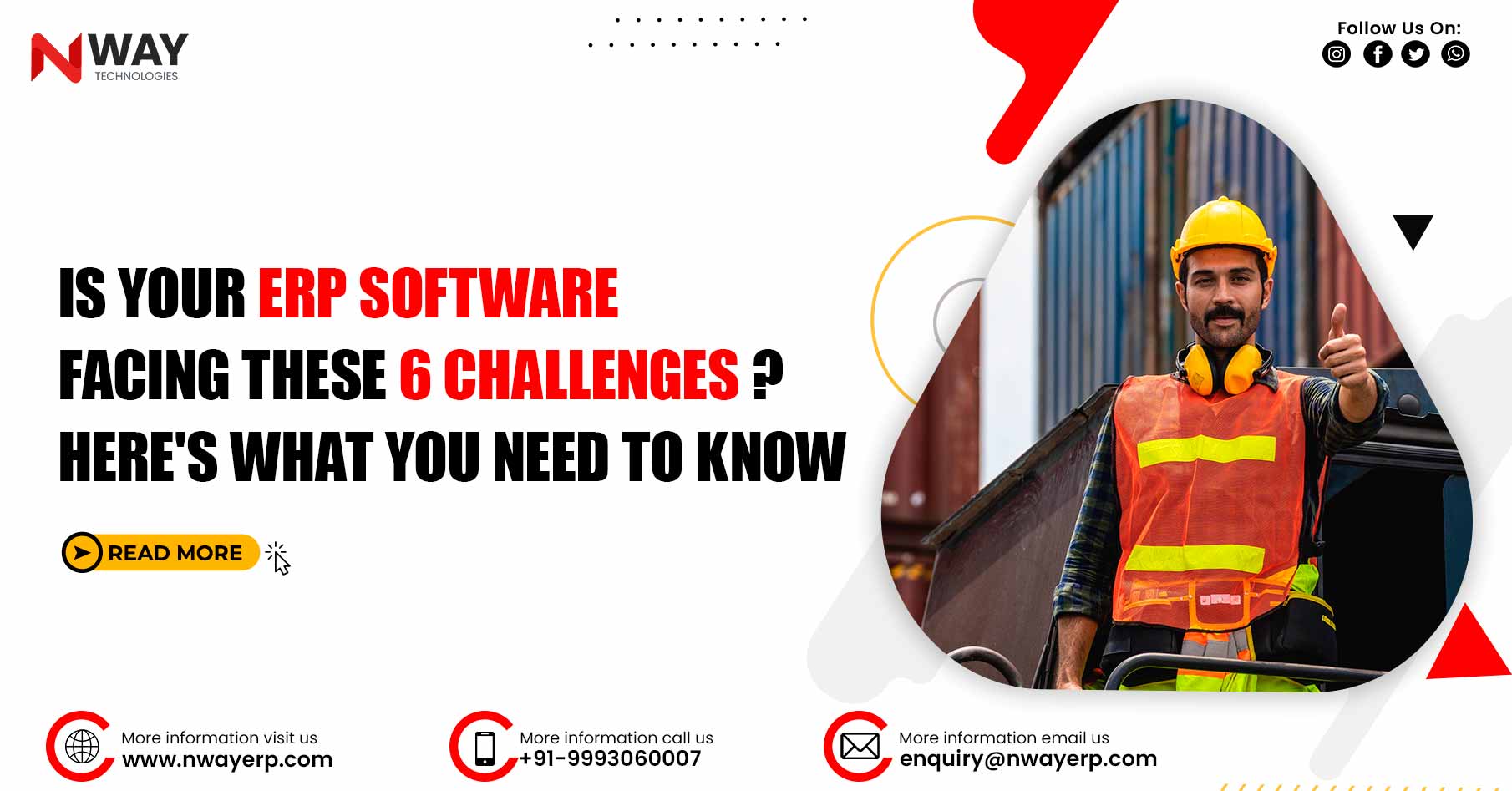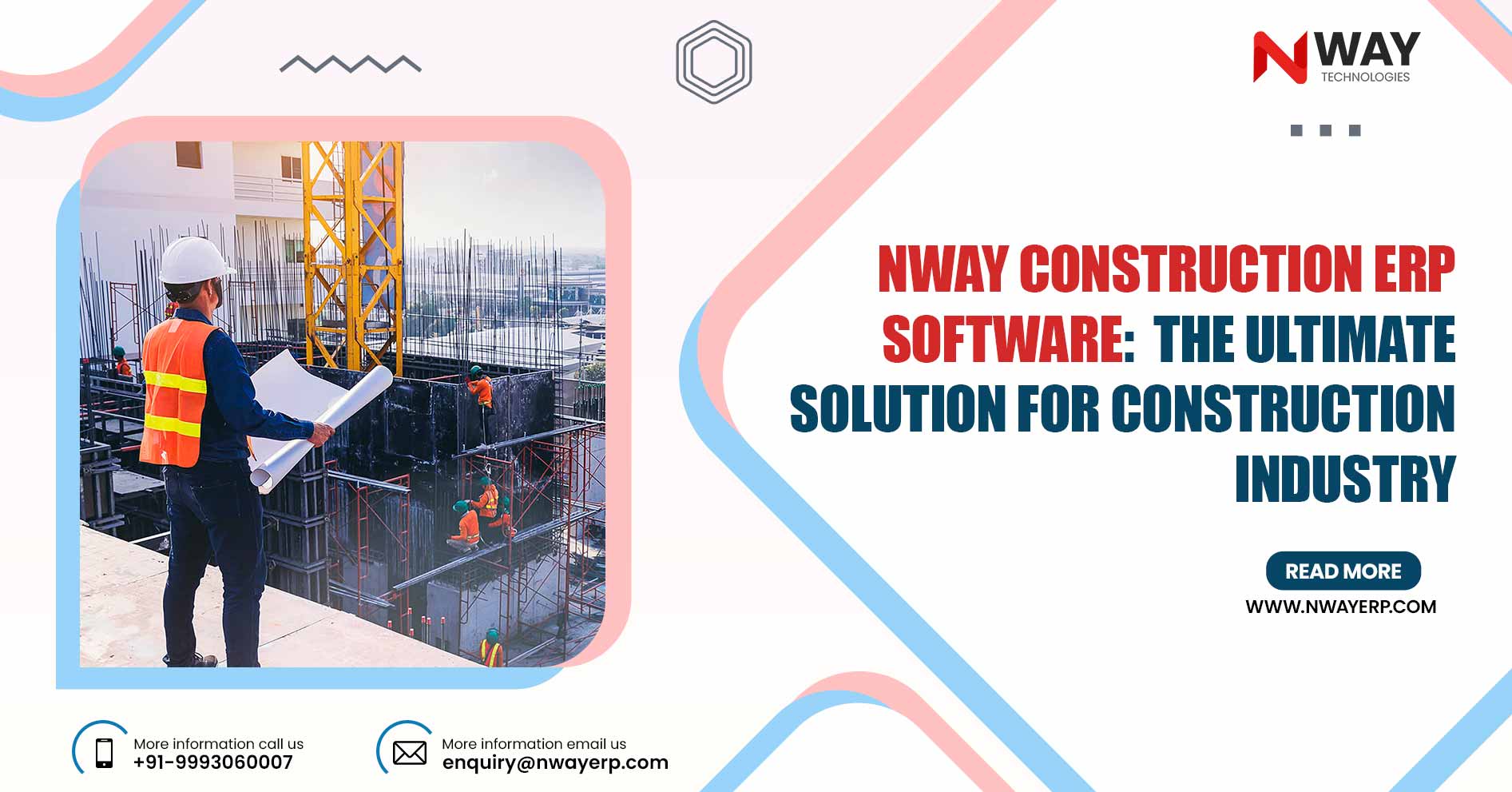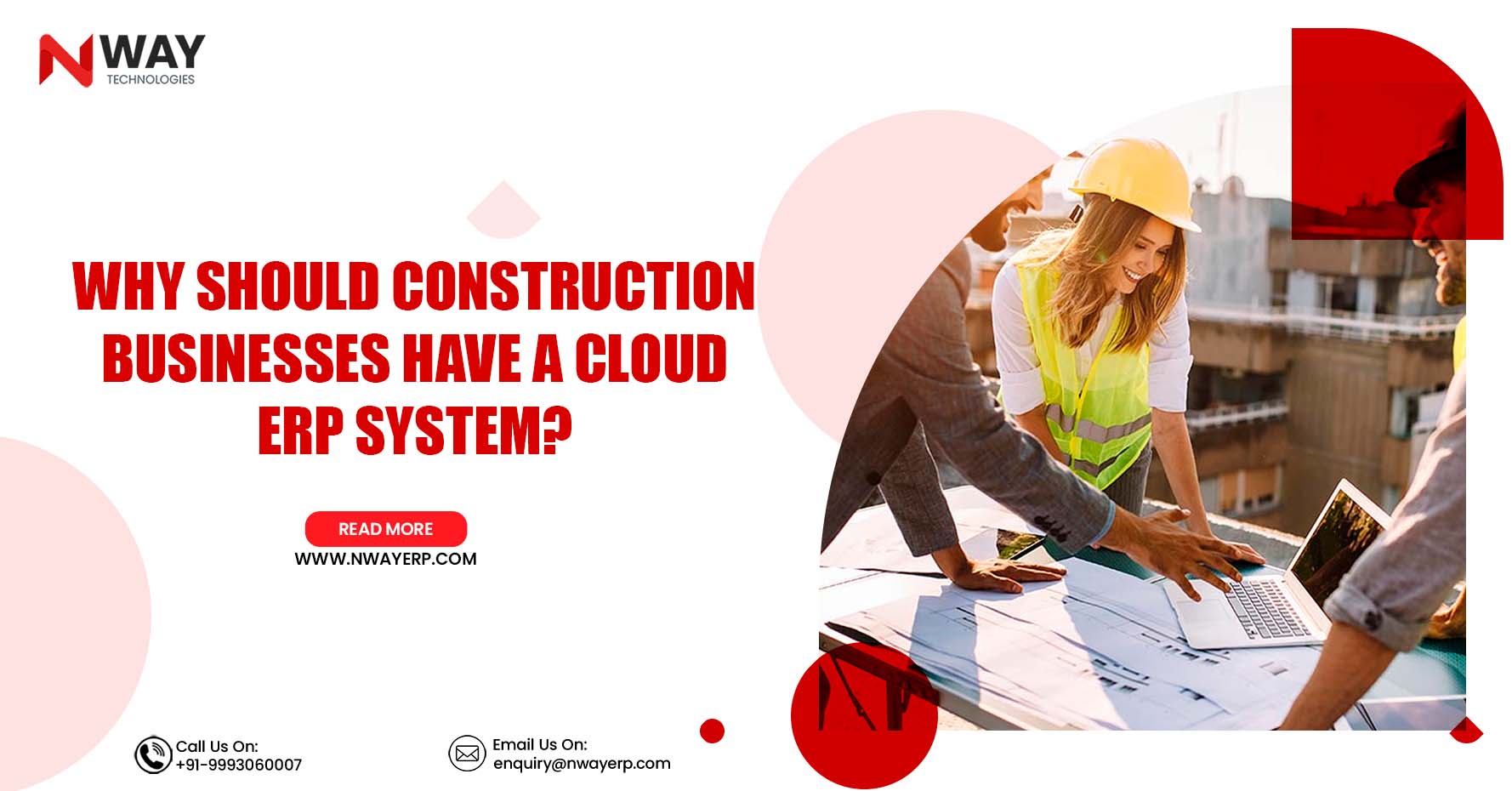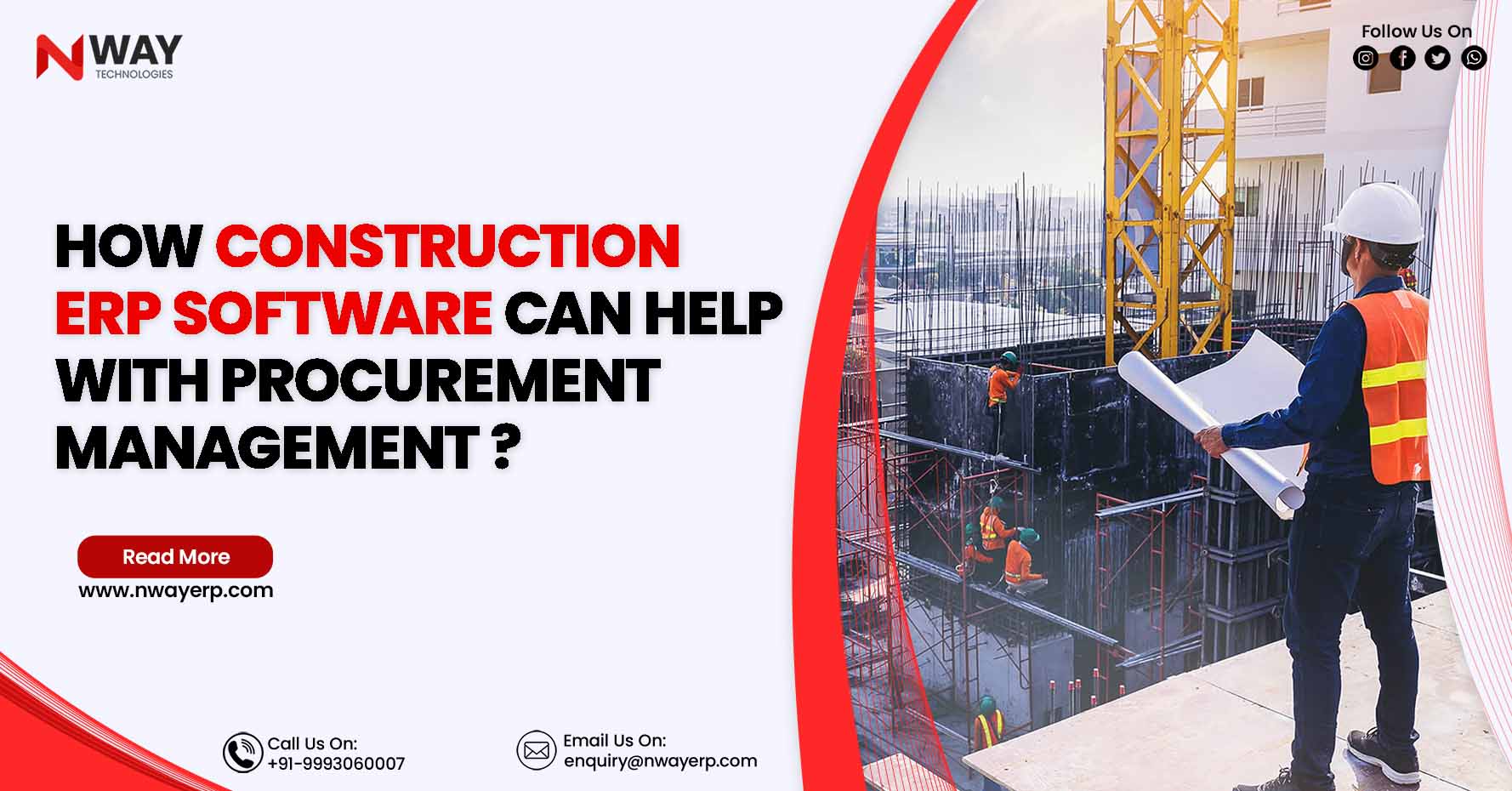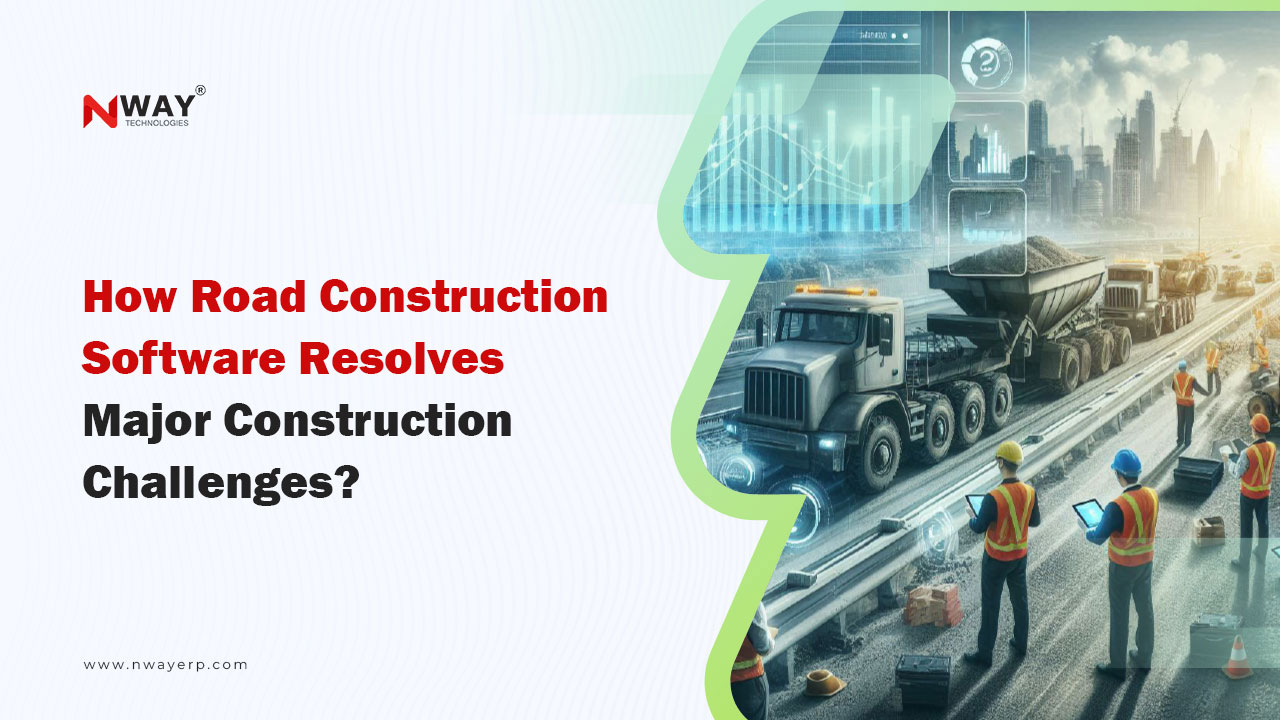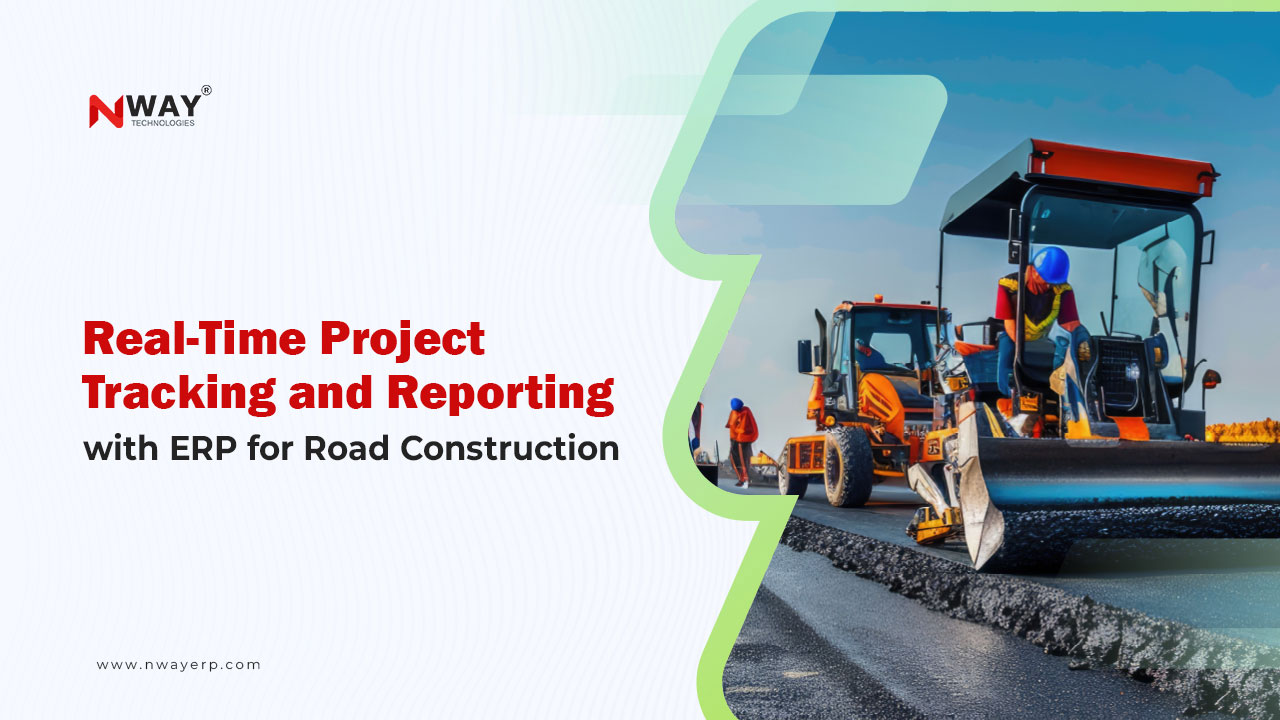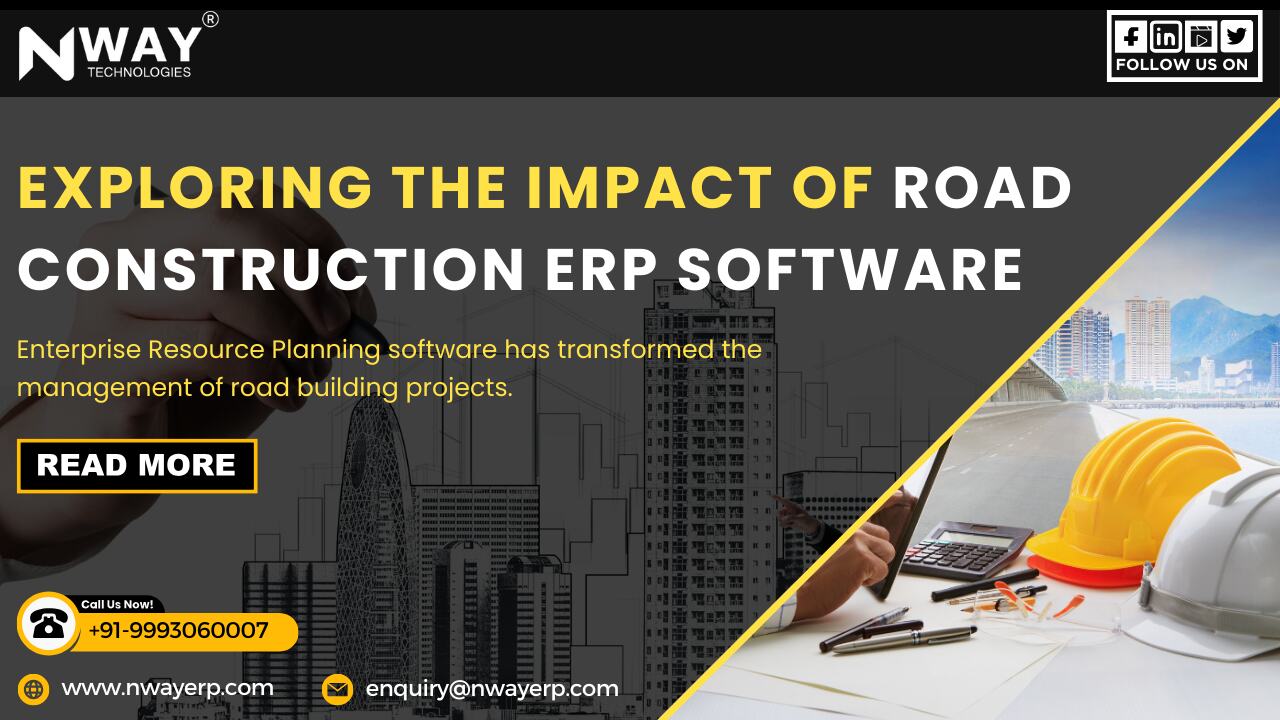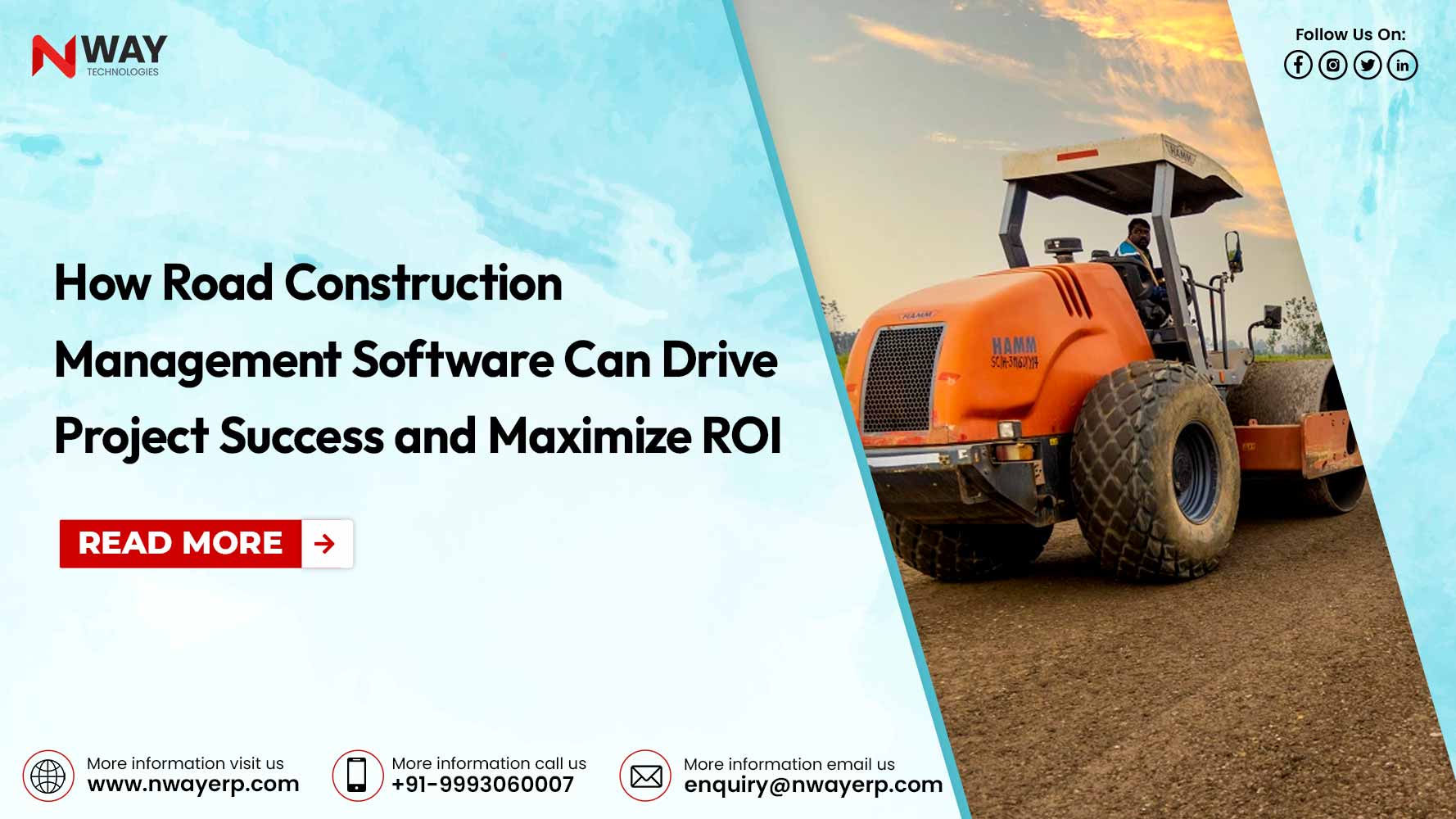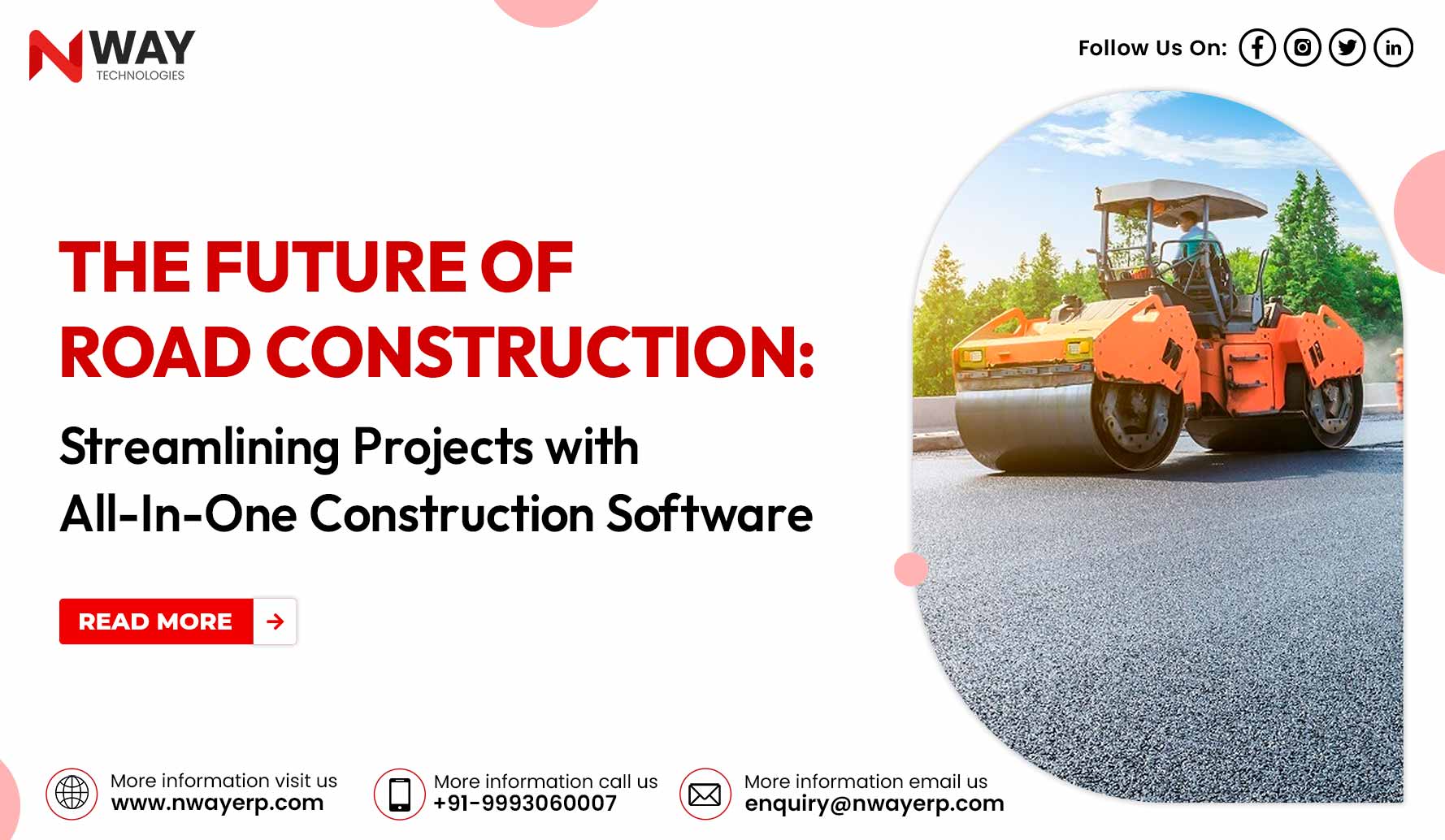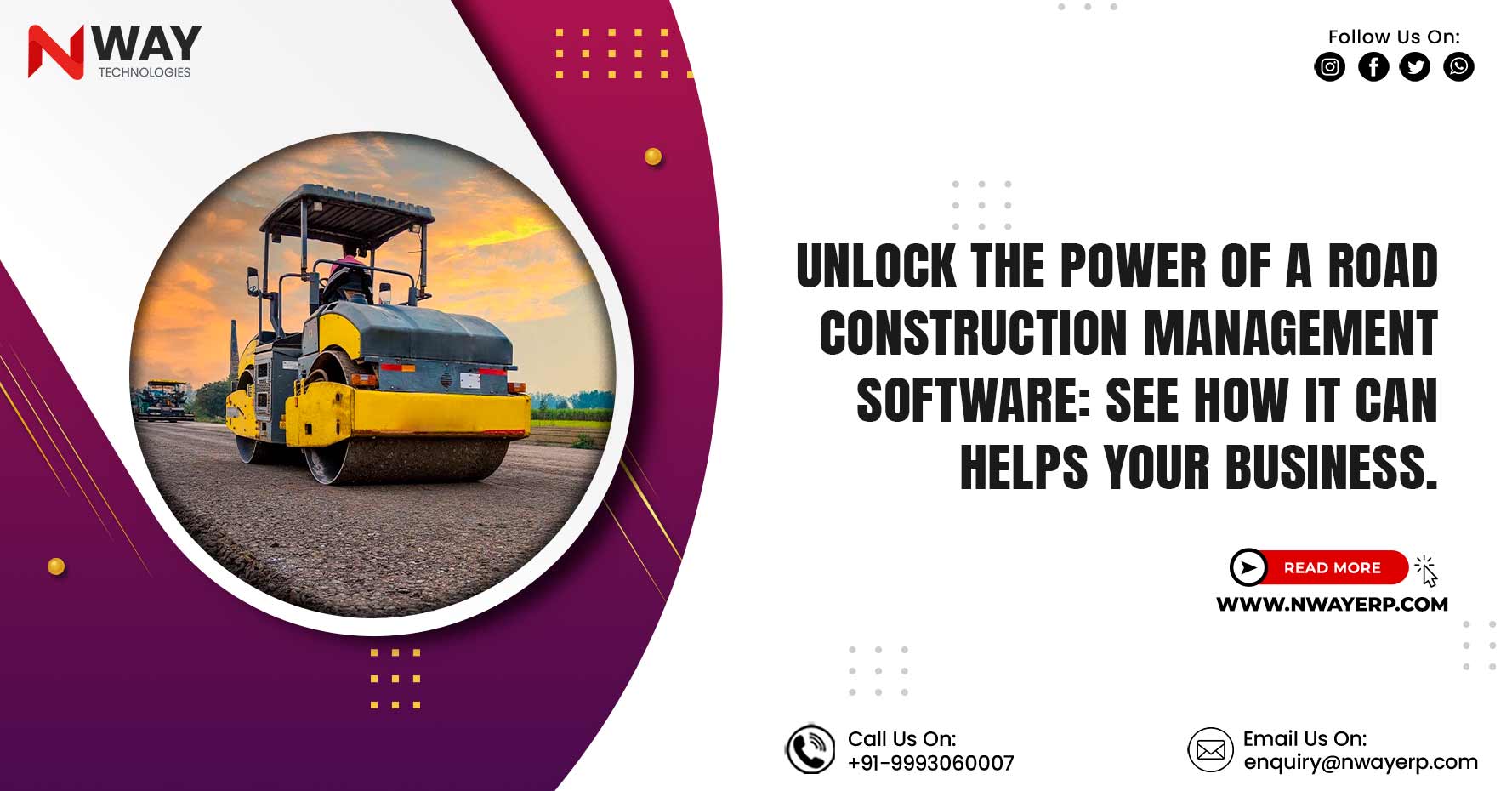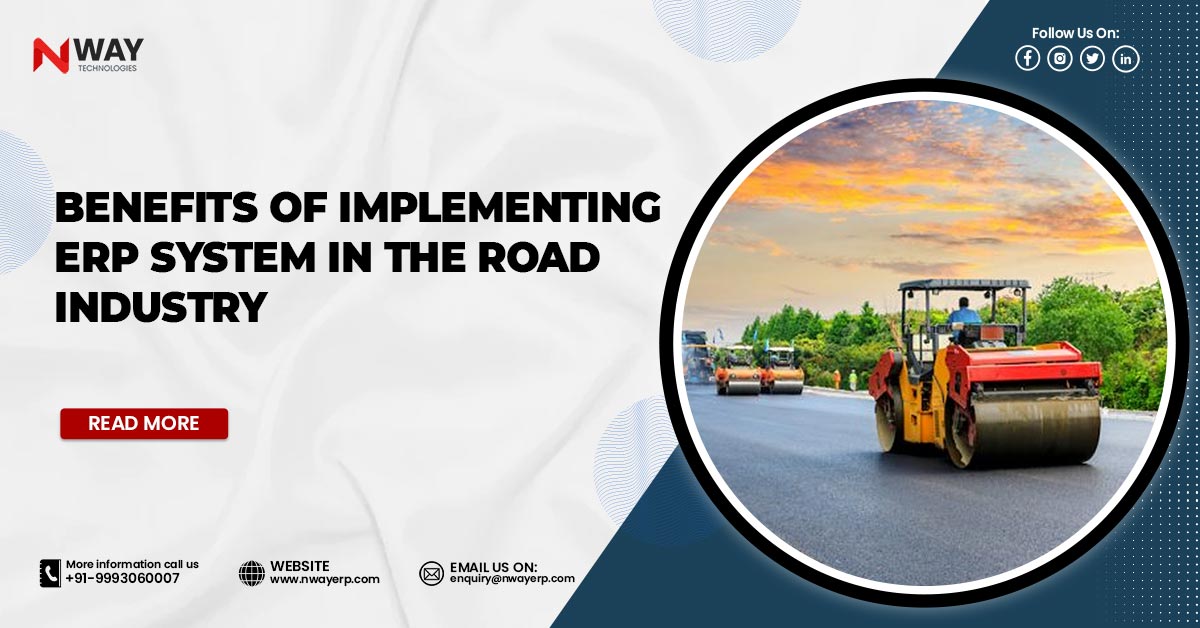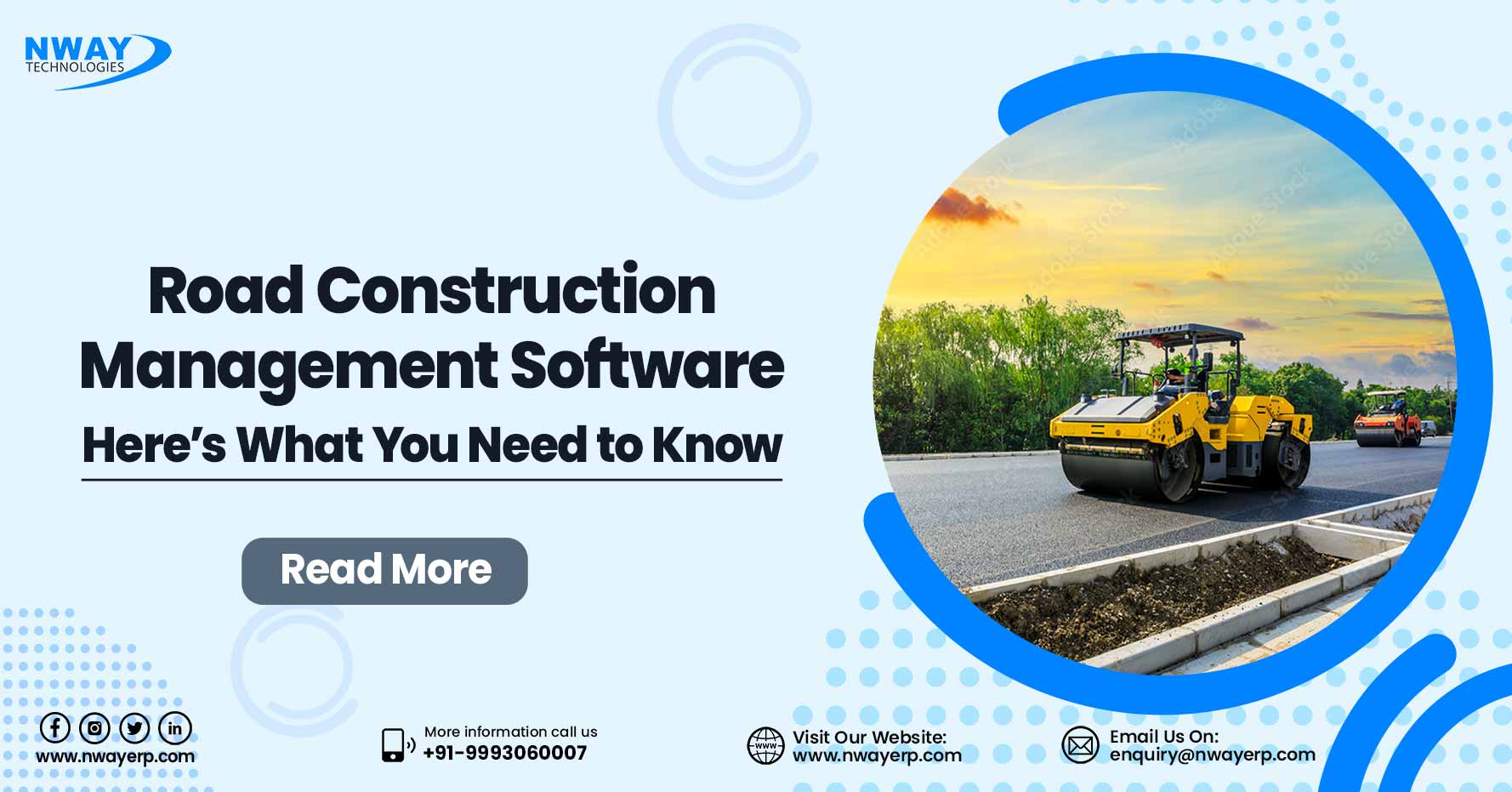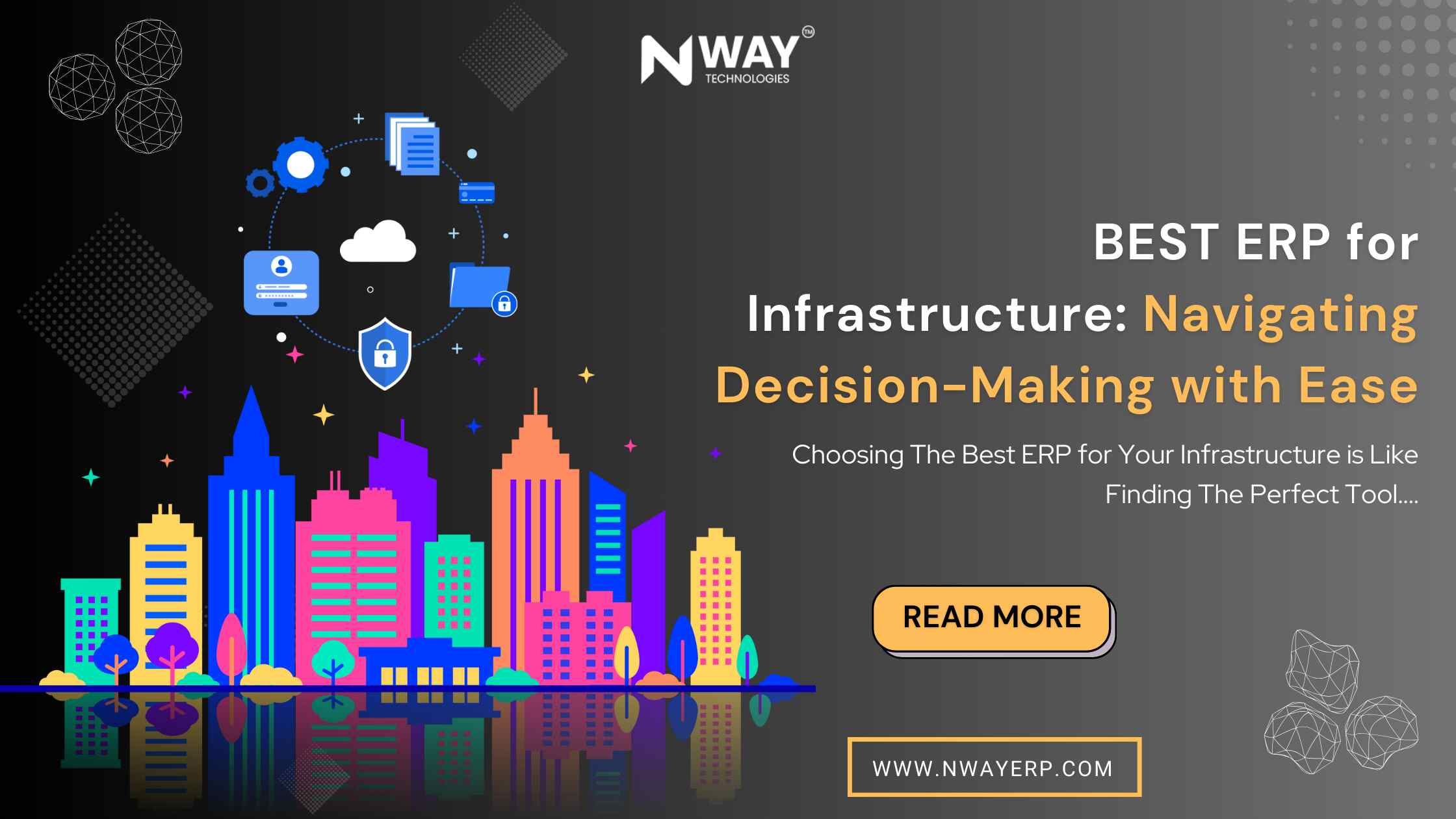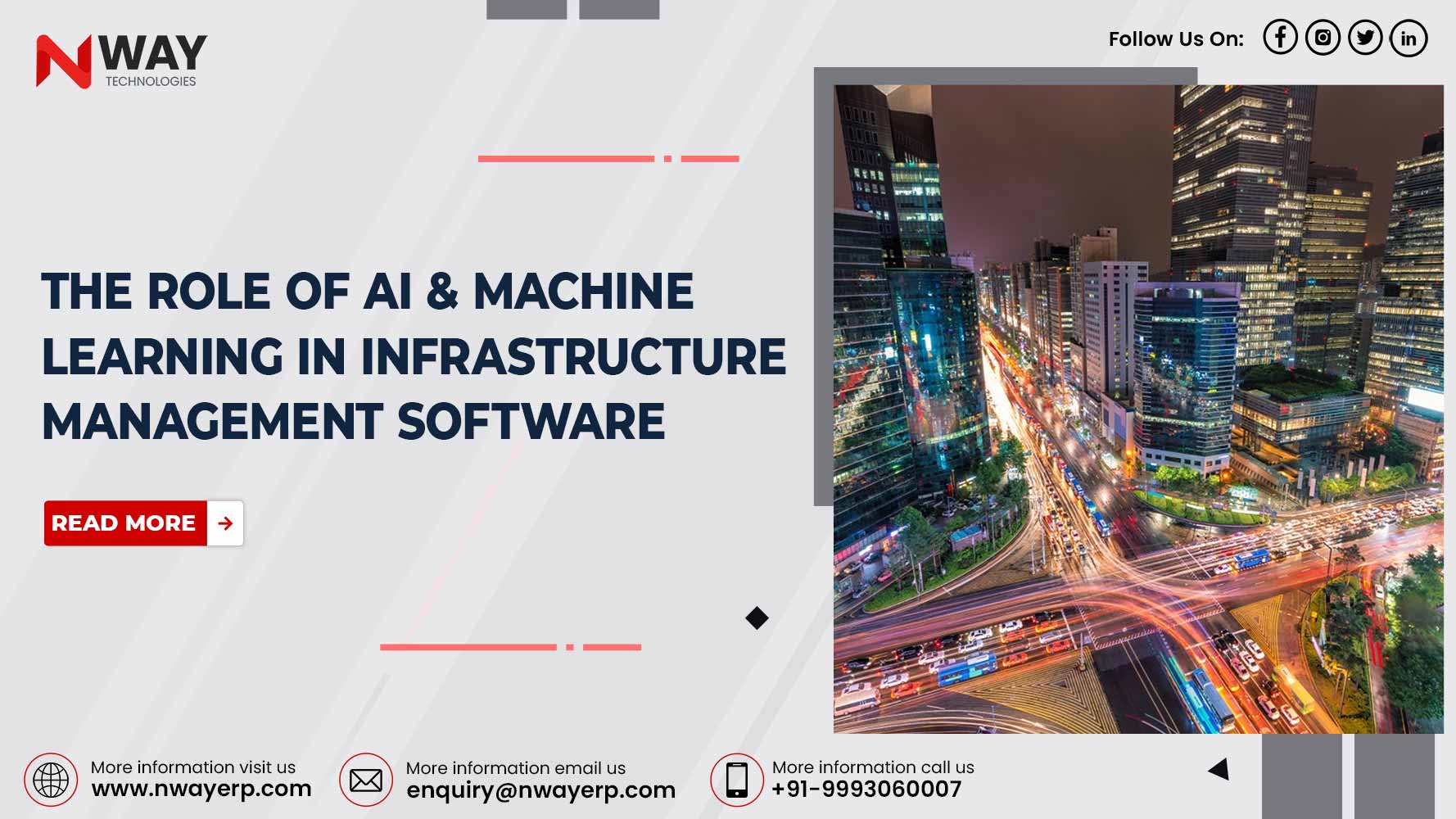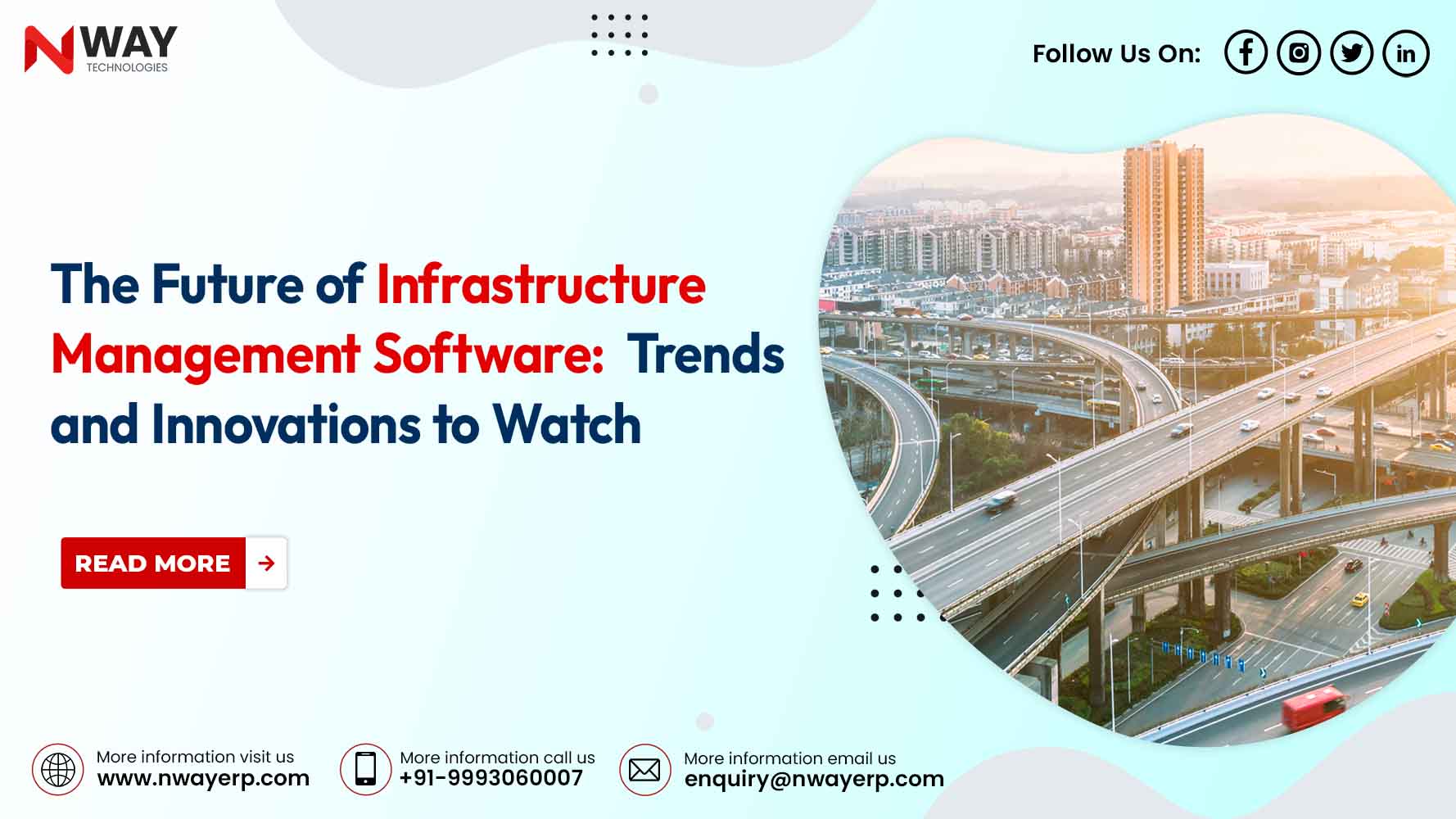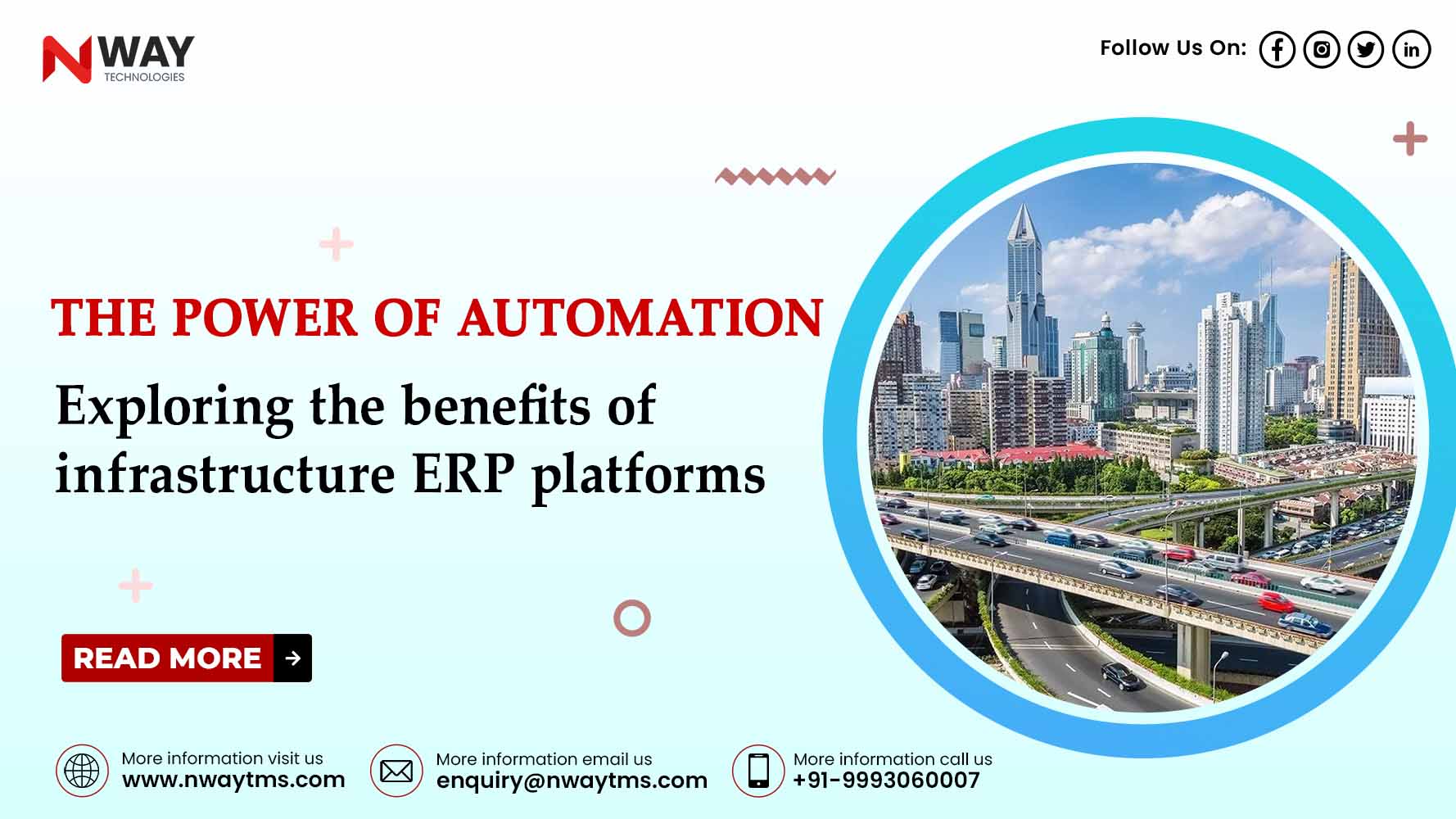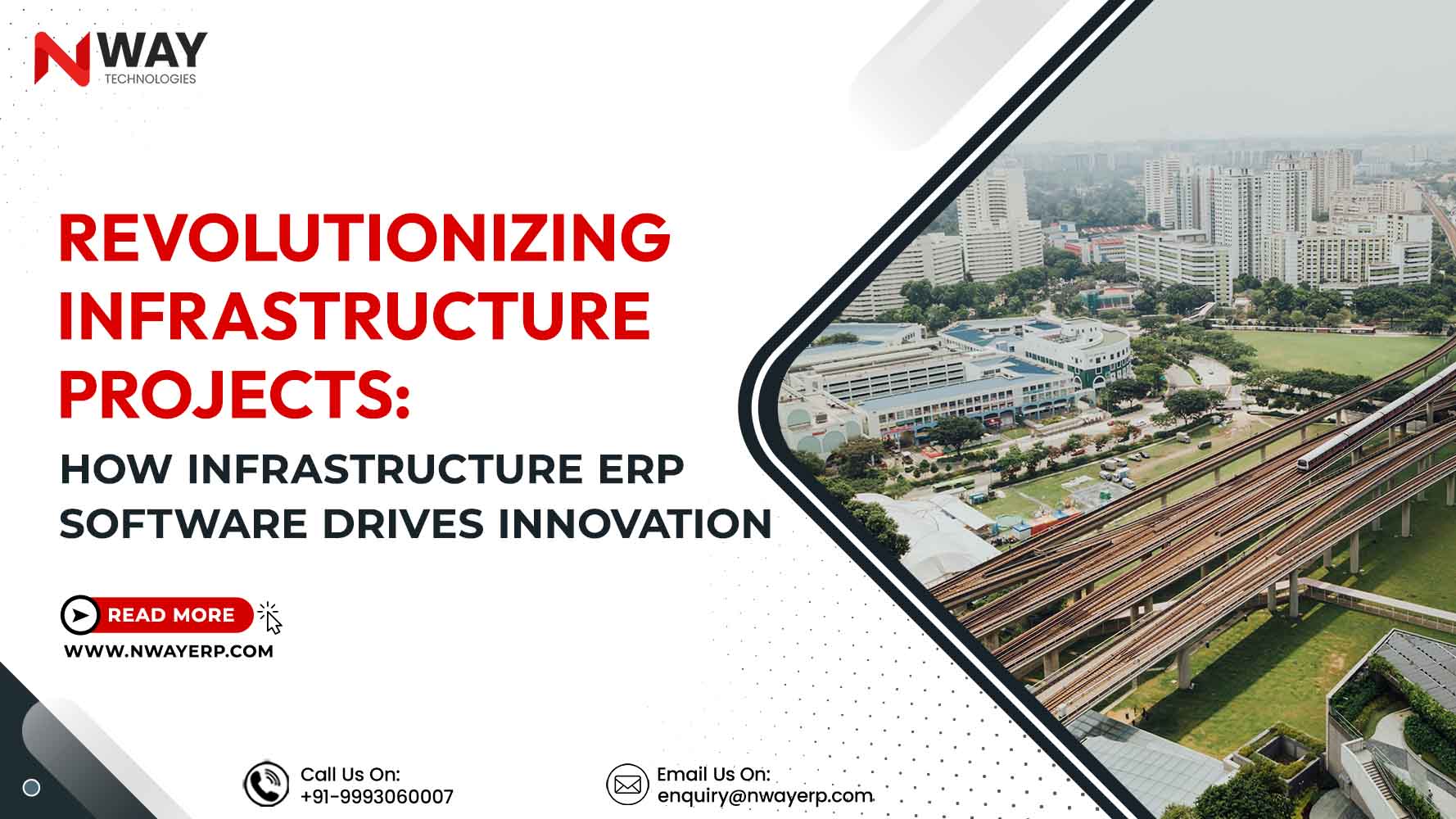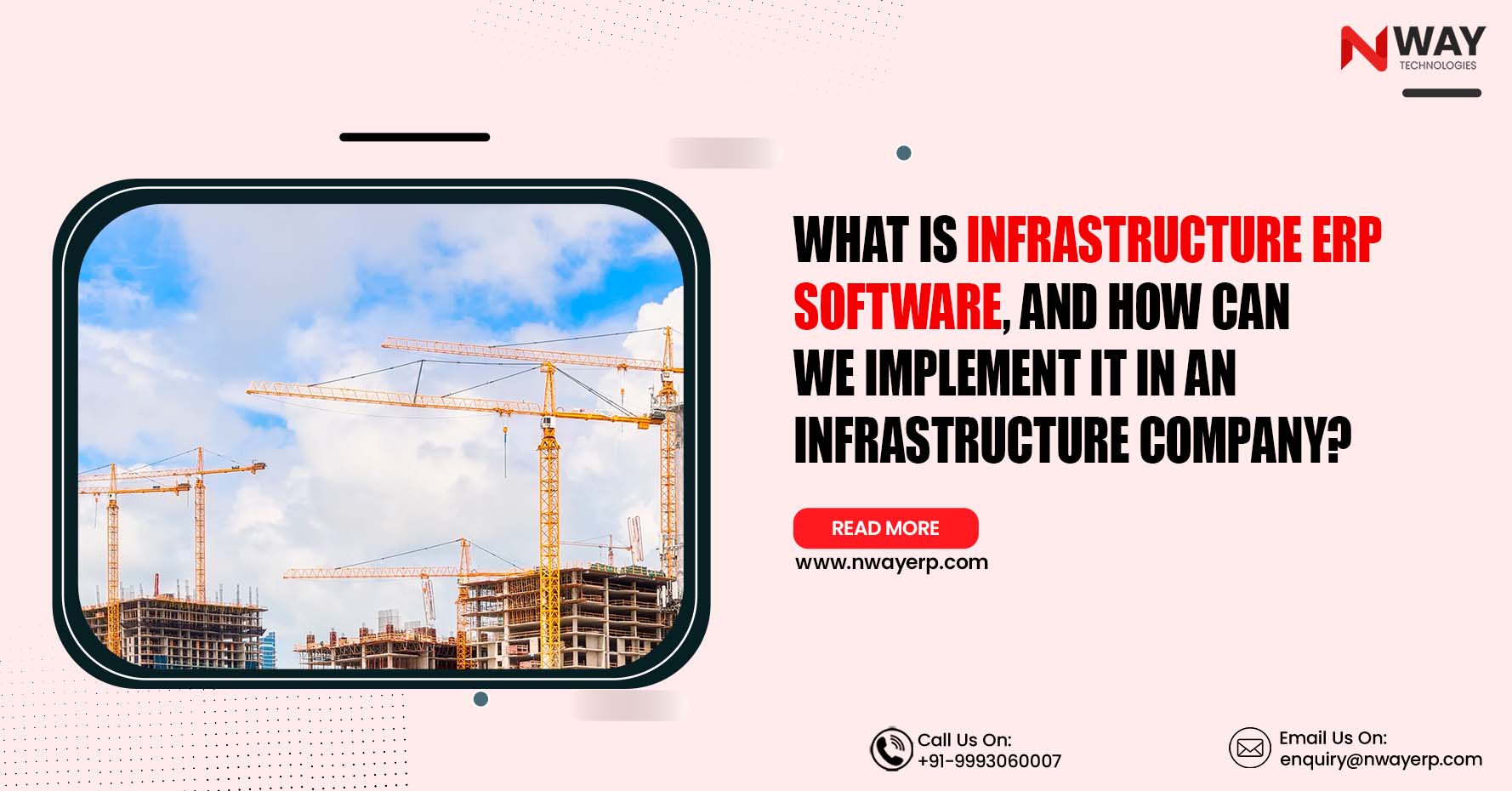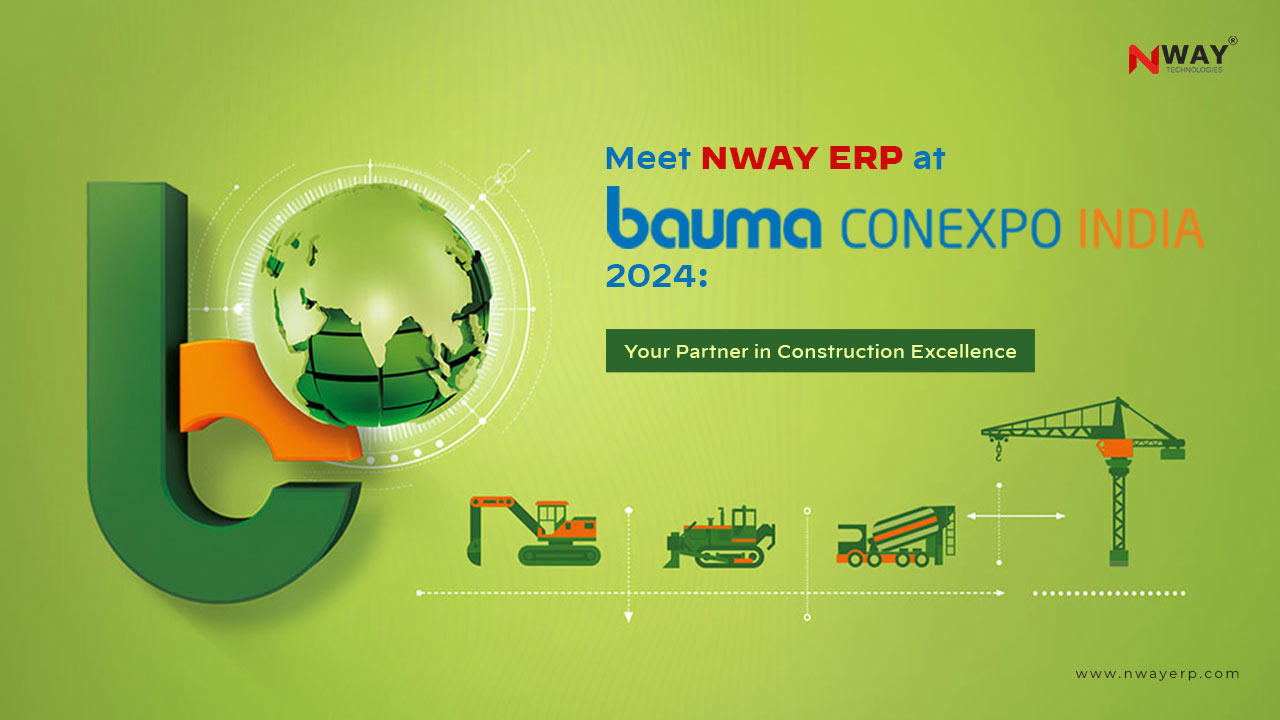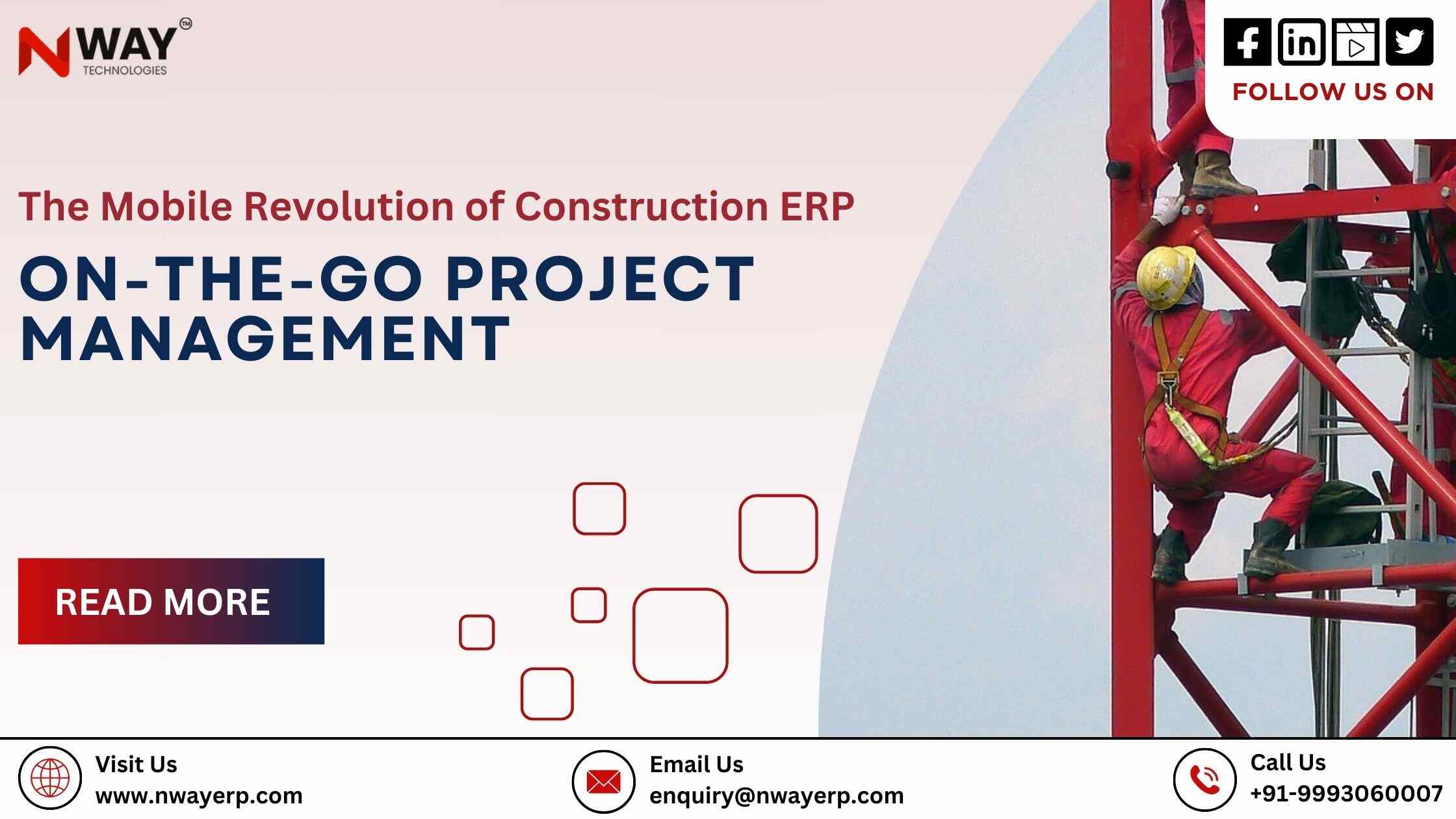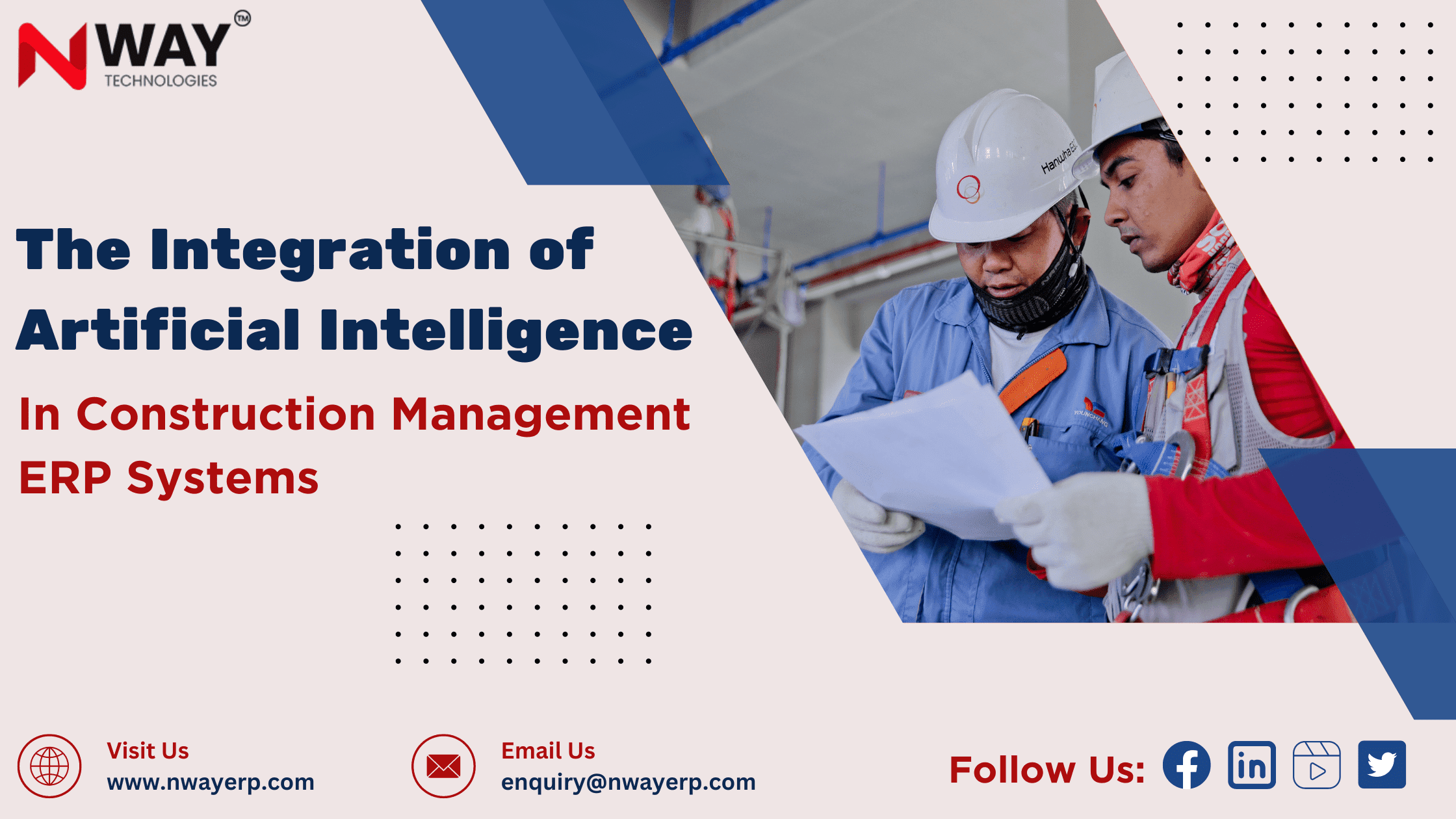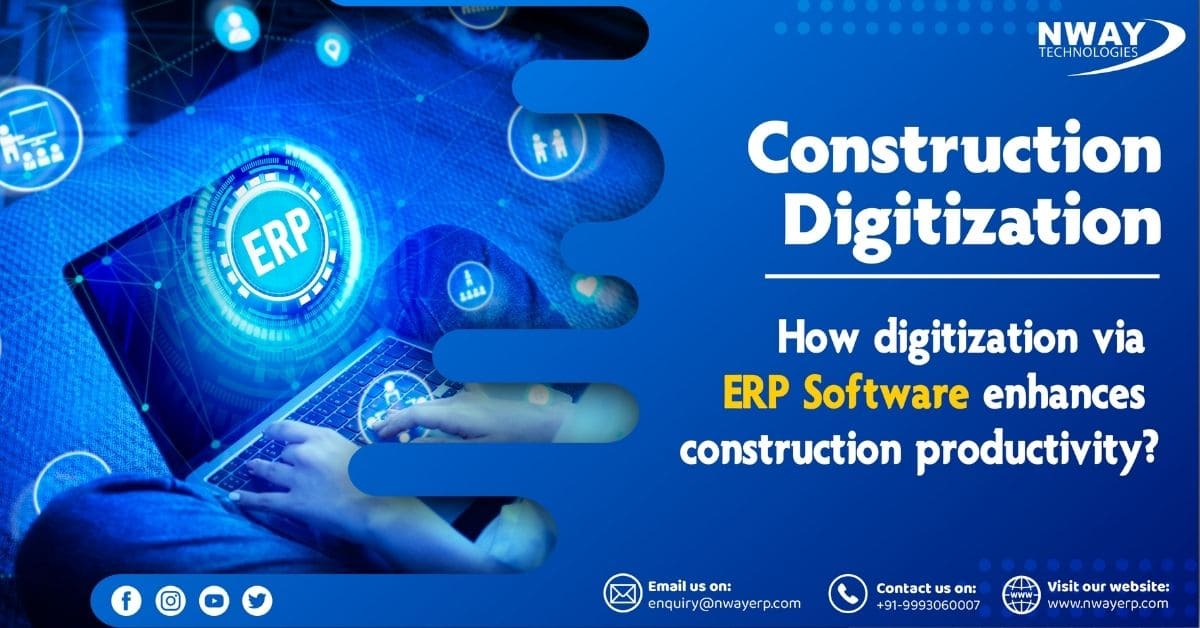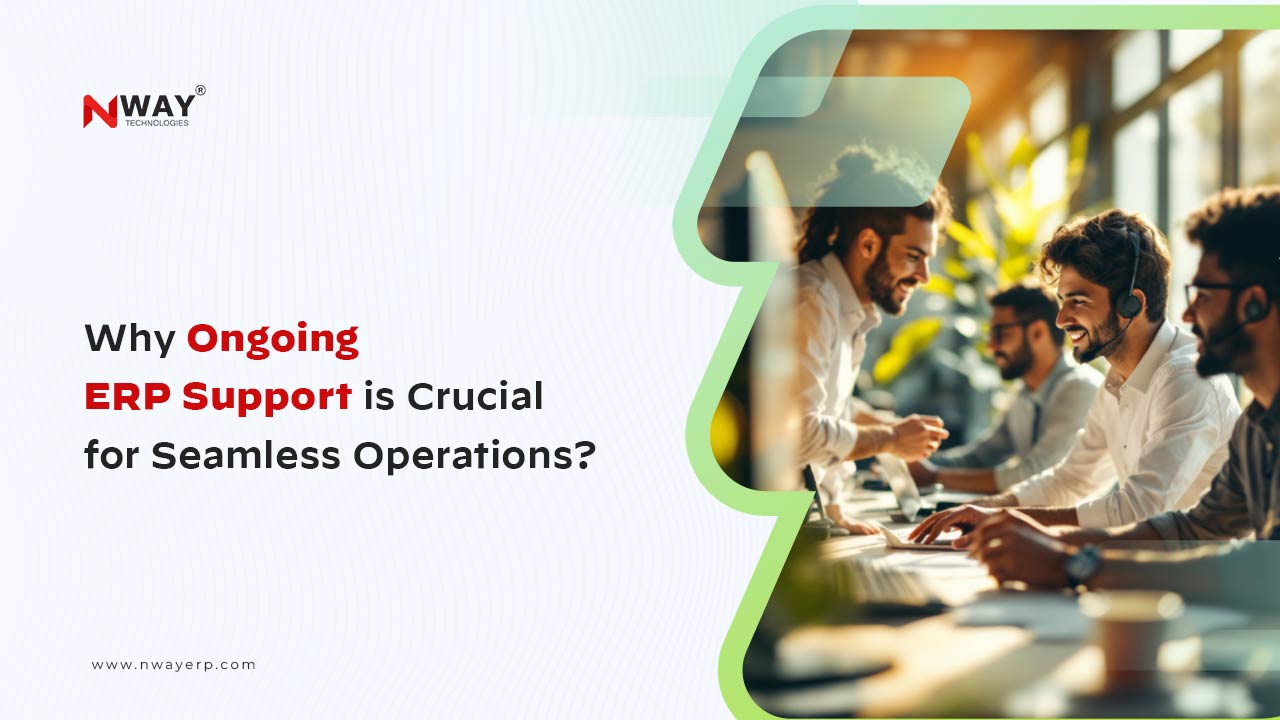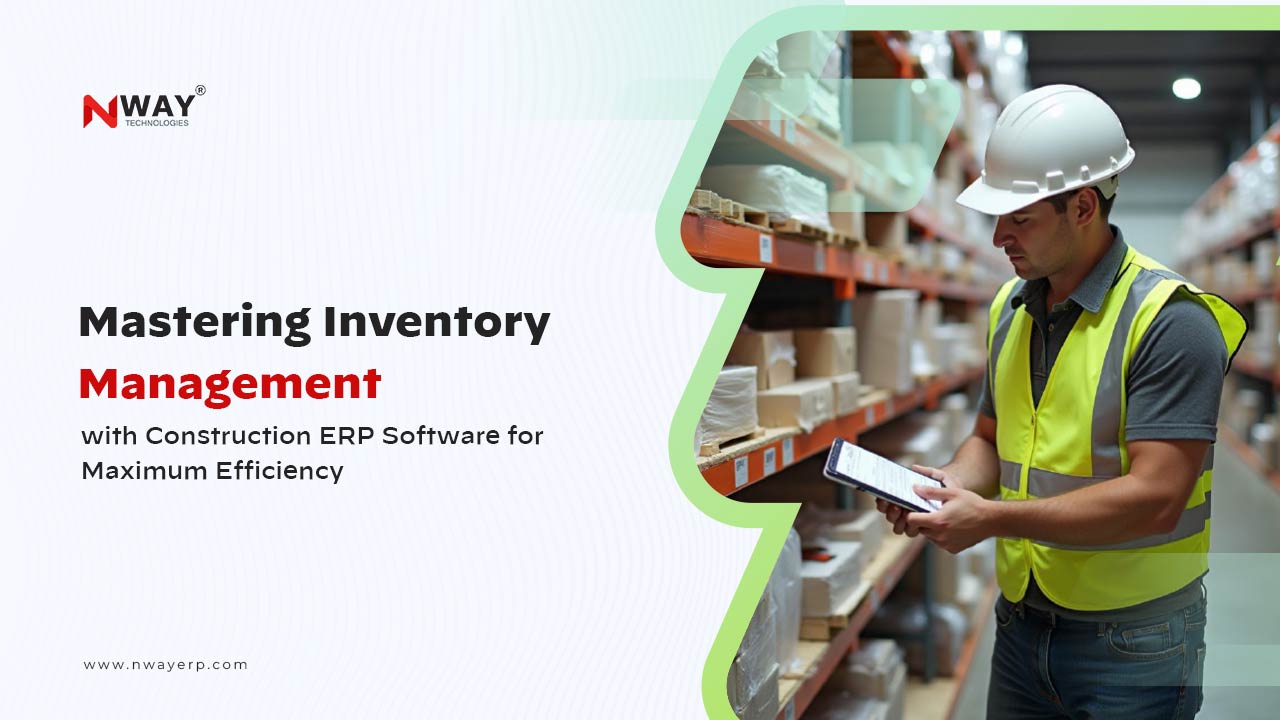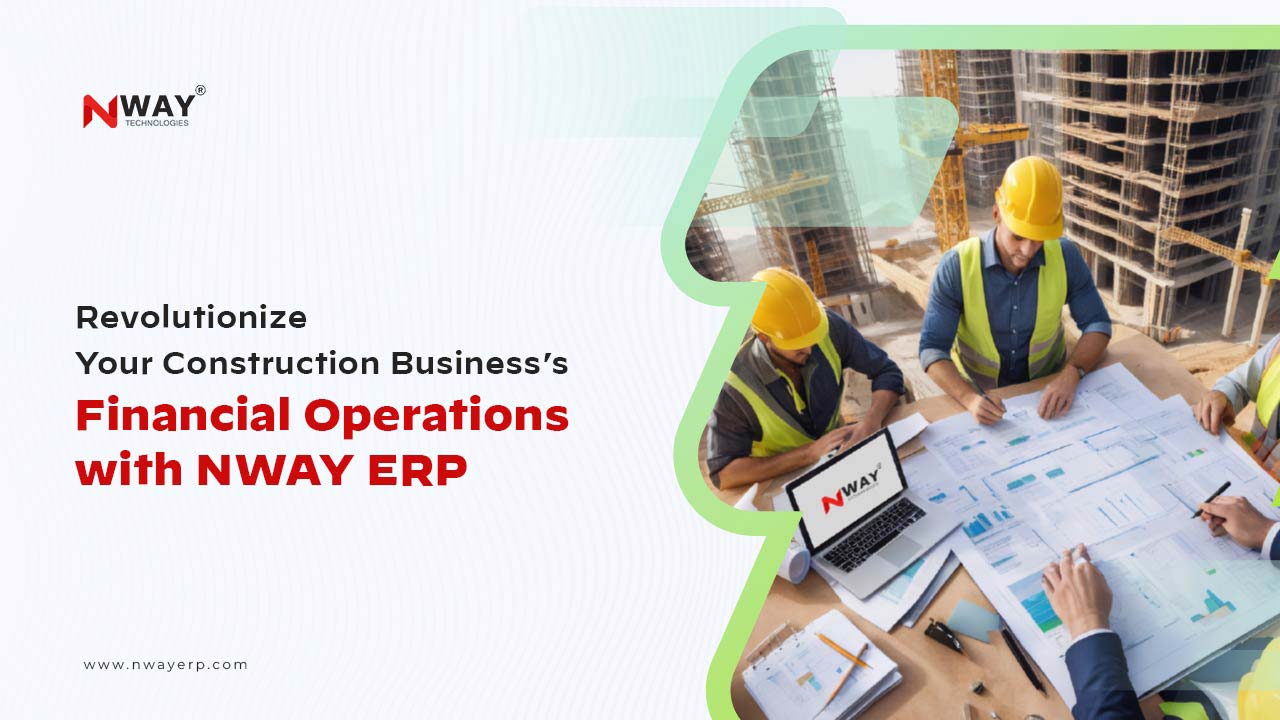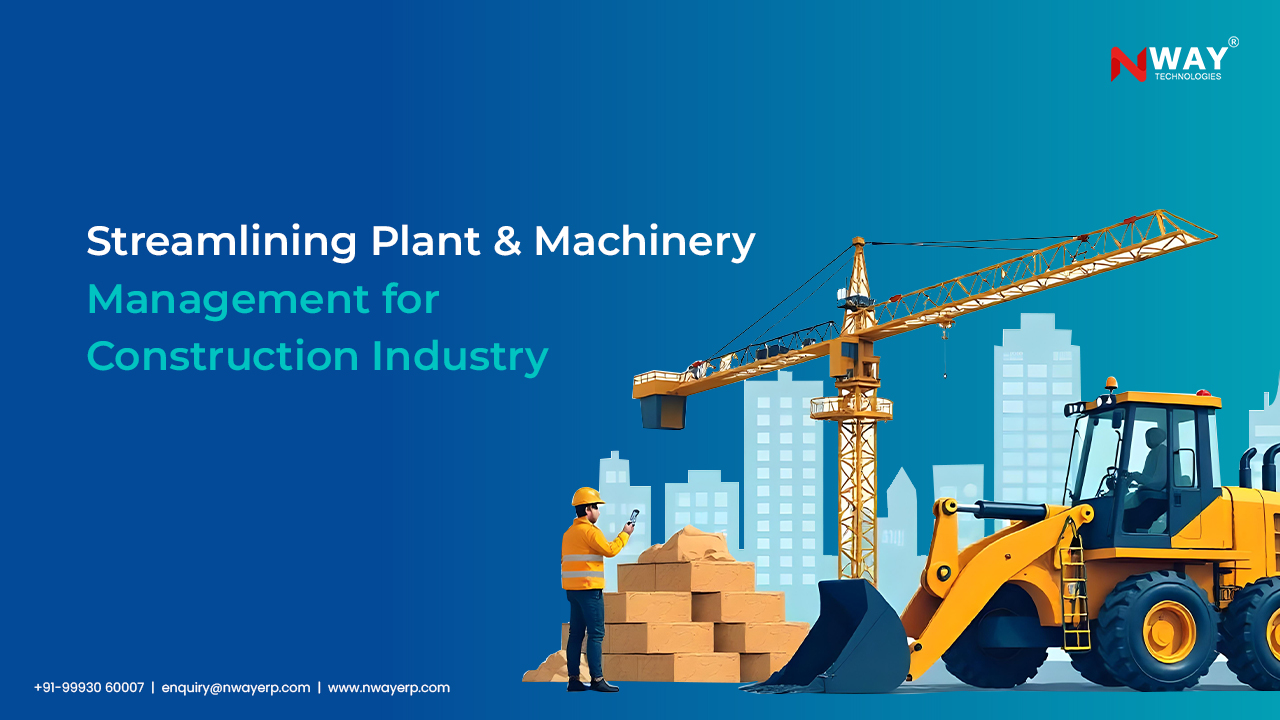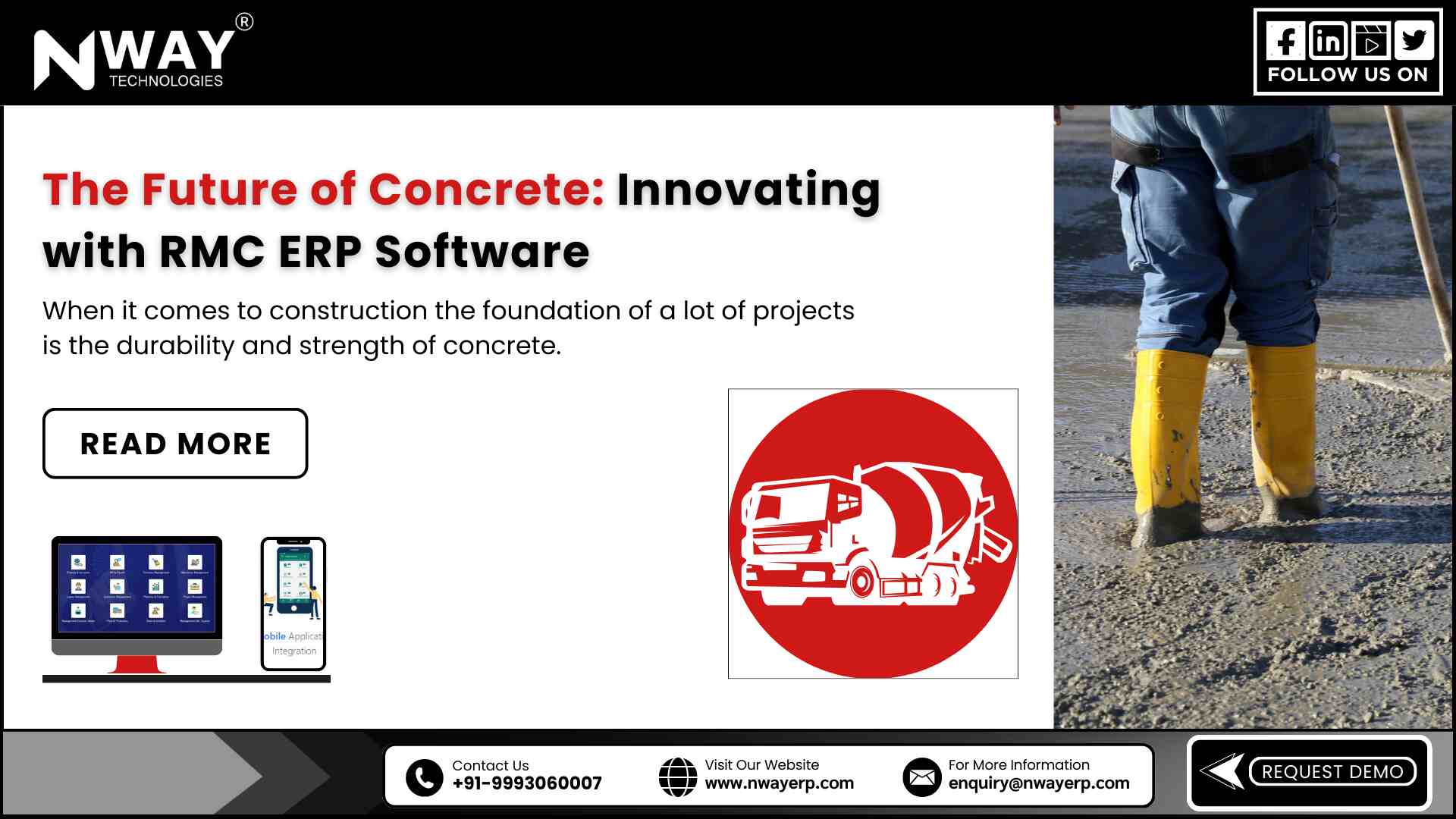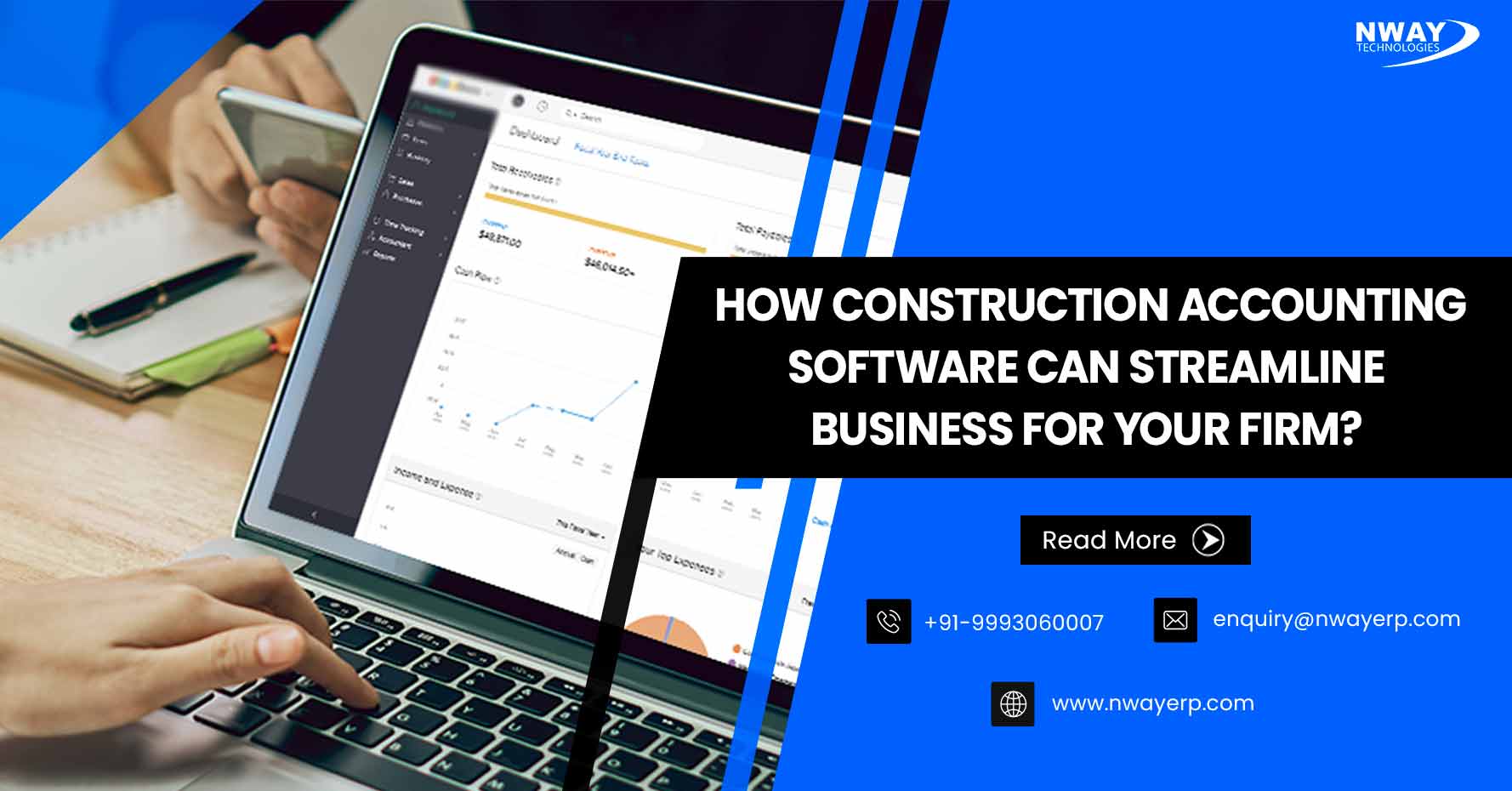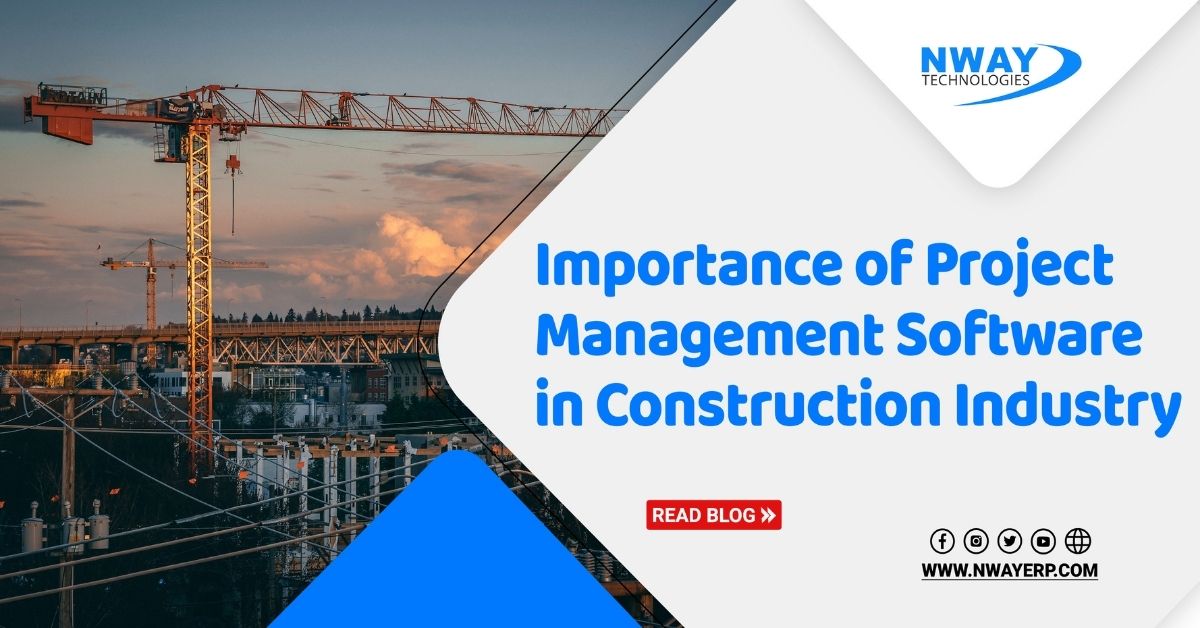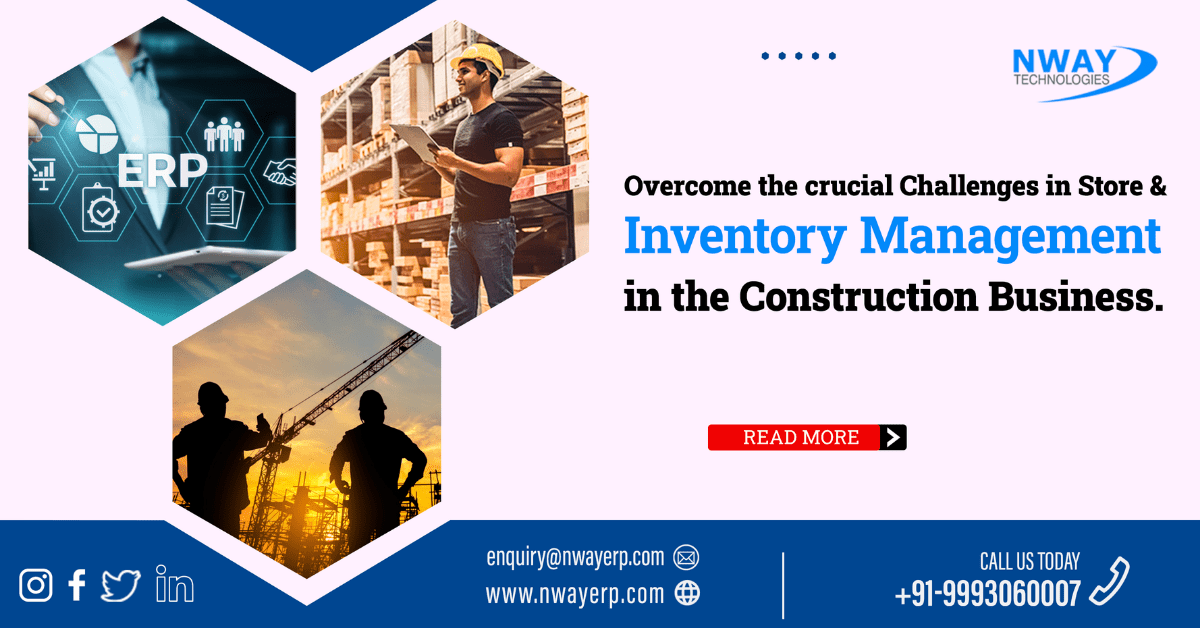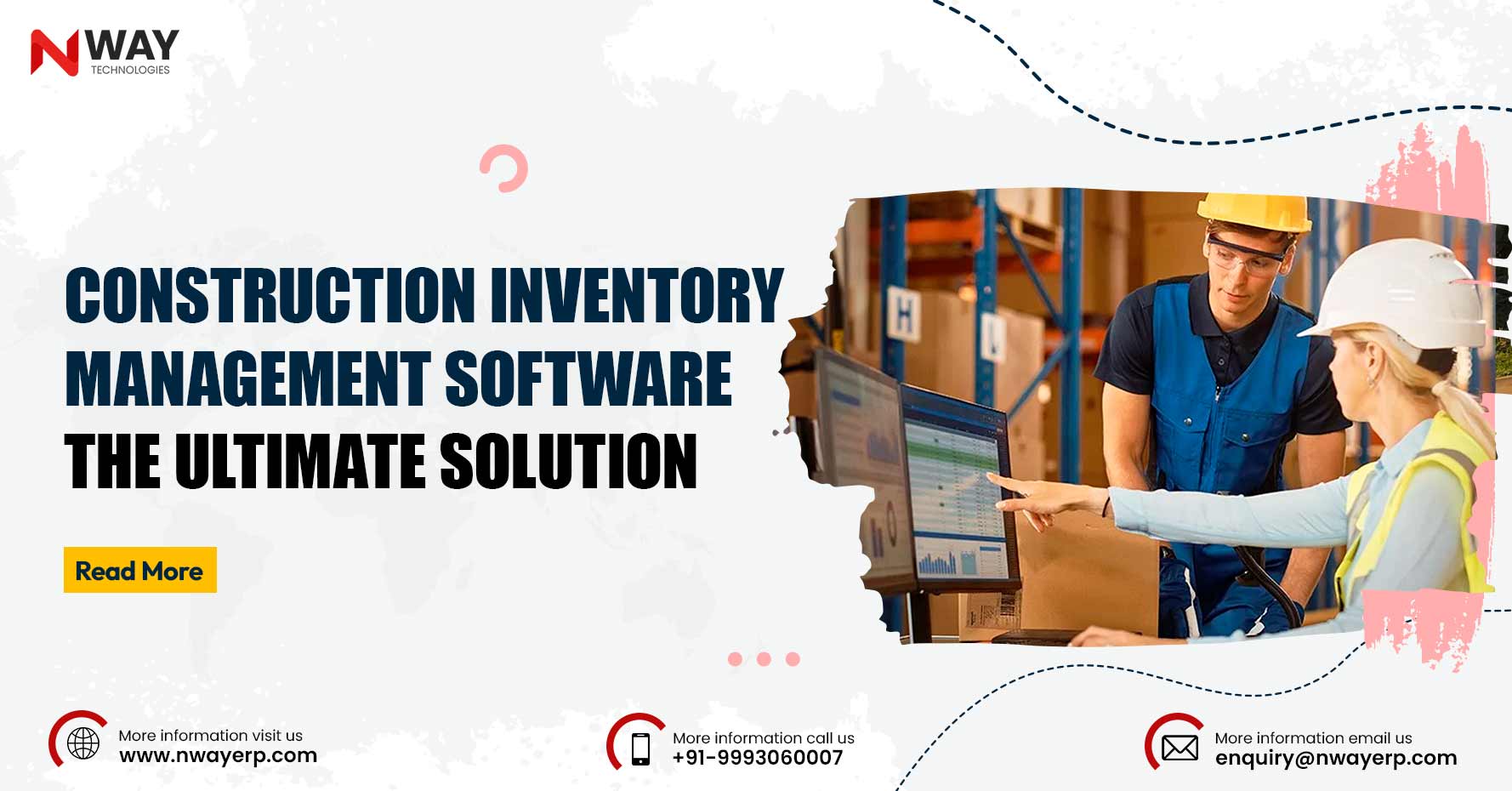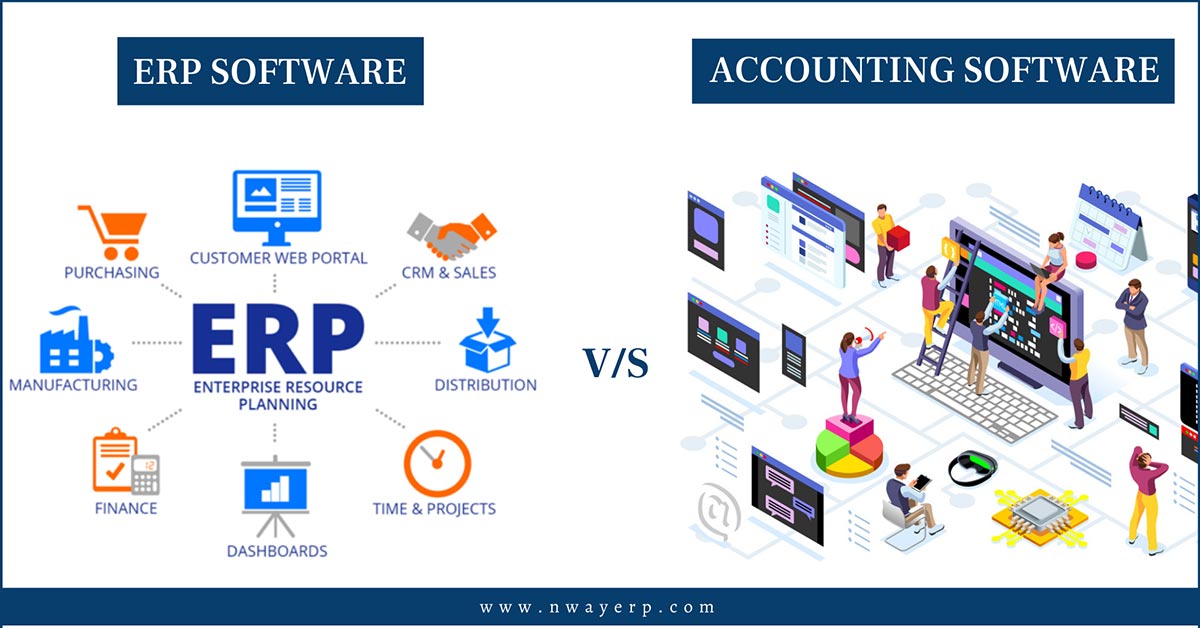Blogs
-
Feb 19 2026Construction projects in India and the GCC are becoming more complex, with multiple sites, tight deadlines, and rising costs. Yet, many teams still rely on spreadsheets and manual tracking, causing delays, errors, and missed opportunities. AI Construction Project Management Software changes this by automating routine tasks, predicting risks, and delivering real-time insights. With smarter tools, managers can reduce manual work, accelerate delivery, and make data-driven decisions. This blog explores how AI transforms construction management and why Nway ERP sets the standard for efficiency, accuracy, and control. Table of Contents: AI Construction Project Management Software removes manual work and delays Why traditional tracking costs time and money AI predicts risks and keeps projects on schedule Nway sets the standard for AI project management How Nway ERP turns insights into faster delivery The future of construction is AI-driven and fully automated only with Nway ERP AI Construction Project Management Software removes manual work and delays Manual tracking and reporting are major bottlenecks in construction projects. Teams spend hours compiling data, updating schedules, and generating reports – time that could be spent on execution. These delays often lead to cost overruns and missed deadlines. According to research, 62% of construction projects experience schedule
-
Feb 10 2026Construction projects rarely fail because of planning. They fail because teams cannot see what is happening in real time. Labor hours go unverified, materials are misallocated, and equipment appears available but sits idle. By the time errors surface, cost overruns and delays have already taken hold. Construction management software addresses this gap. It captures real-time data, connects labor, materials, and equipment, and provides actionable insights. In India and the GCC, where projects span multiple sites and resources are complex, such visibility is critical for control and profitability. Table of Contents: Why tracking breaks down on construction sites The role of construction management software Tracking labor with real-time data Tracking materials across projects Tracking equipment without manual logs When basic software falls short Why construction ERP software brings control What improves with one connected system How Nway ERP strengthens project execution Why tracking breaks down on construction sites Many construction companies still rely on spreadsheets, manual logs, and delayed reports. Labor hours are estimated, material usage is reconciled late, and equipment tracking is inconsistent. These practices create blind spots that amplify risk. In India, over 70 million construction workers make manual labor tracking unreliable across sites. In the GCC, multi-site operations
-
Jan 29 2026Nway is an AI-Powered Procurement Software built as part of a complete construction ERP platform for contractors. This AI-Powered Procurement Software transforms procurement by replacing manual workflows such as spreadsheets, emails, and paper approvals with a single, connected system that improves speed, accuracy, and control. In construction, procurement is often a major cause of cost overruns and project delays due to slow approvals, data entry errors, and limited visibility into supplier performance and spending. Nway’s construction procurement software standardises procurement data, automates repetitive tasks, and provides real-time insights that help contractors manage purchasing across multiple projects in India, the GCC, and global markets. This blog explores how Nway applies AI-Powered Procurement Software to construction procurement, why traditional processes fail at scale, and what measurable improvements contractors see when procurement becomes data-driven and predictable. Table of Contents: Why Procurement Is a Big Challenge for Contractors How Nway’s AI Actually Works in Procurement Measurable Benefits Contractors See Nway vs Other Procurement Management Software Why Procurement Is a Big Challenge for Contractors Most contractors still rely on spreadsheets, paper purchase orders, and email chains to manage procurement. These manual methods often create: Mistakes and mismatches due to manual data entry Slow approval cycles
-
Jan 28 2026Growing builders today manage more than just construction projects. They coordinate multiple teams across sites, track budgets, monitor equipment, and meet strict compliance standards. Using spreadsheets, emails, or disconnected tools slows progress and increases errors. That’s why construction management software is essential – it centralizes all project activities, provides real-time visibility, and helps builders make faster, data-driven decisions. Research shows that the global construction project management software market is growing rapidly and is expected to exceed $3.2 billion by 2034 as builders adopt digital tools to improve efficiency and reduce risk. Table of Contents: What Is Construction Management Software? Why Growing Builders Need Construction Management Software Key Benefits of Construction Management Software How Nway ERP Helps Growing Builders Achieve Business Impact With vs Without Construction Management Software What Is Construction Management Software? Construction management software is a platform that combines scheduling, resource tracking, budgeting, procurement, documentation, and reporting in a single system. Instead of juggling multiple tools, teams gain a unified view of projects, which improves coordination, reduces errors, and speeds decision-making. A construction management system is specifically designed for construction workflows: managing subcontractors, tracking materials, scheduling equipment, and maintaining compliance documentation. It provides builders with the visibility and control
-
Jan 23 2026Infrastructure projects are complex. They involve multiple teams, budgets, timelines, and compliance requirements. Managing everything with spreadsheets and disconnected systems is slow, error-prone, and costly. That’s where Infrastructure ERP software comes in. This type of software connects project planning, finances, resources, and reporting into a single, real-time system. With Infrastructure ERP software, infrastructure companies can track costs, manage resources, generate instant reports, and make decisions quickly. In short, an ERP system simplifies complexity, reduces risks, and keeps projects on time and budget. Table of Contents: What Is Infrastructure ERP Software? Why the Infrastructure Industry Needs ERP Key Benefits of Infrastructure ERP Software Infrastructure ERP and Construction Collaboration How Nway ERP Helps Infrastructure Businesses Win Comparing With and Without ERP What Is Infrastructure ERP Software? Infrastructure ERP software is a digital platform that integrates all functions of infrastructure projects. It combines project management, finance, procurement, reporting, and field operations into one system. This eliminates the need for separate tools for each department, giving managers a complete view of their projects at any time. For example, instead of juggling multiple spreadsheets for costs, labour, and equipment, teams can access everything from one dashboard. This improves visibility, speeds up decisions, and reduces errors.
-
Jan 20 2026Nway Technologies has built its reputation as an award-winning construction ERP by solving real operational problems in the construction sector. As a reputed provider of Construction ERP in India, Nway focuses on reliability, control, and execution. In 2025, this approach led to two major national recognitions. These awards validate Nway’s role in the construction industry and confirm its position among the best construction ERP software platforms used by growing construction firms. Table of Contents: Award-Winning Construction ERP Built for Real-World Use Bharat Pratibha Sammaan Award 2025 National Award for Excellence 2025 – Solution Provider of the Year (Construction ERP) How Nway Differentiates in a Competitive ERP Market Award-Winning Construction ERP Built for Real-World Use The construction industry demands accuracy, control, and visibility. An award-winning construction ERP is judged not by features alone, but by adoption, reliability, and results. ERP systems succeed only when they are used consistently across sites and teams. Industry reports show that over 70% of construction firms in India now prioritise digital systems for project control, reinforcing the need for dependable platforms that support digital transformation in construction. Recognition from national award bodies indicates that an Nway ERP meets these standards in practice, not theory. Nway’s awards
-
Jan 10 2026AI is no longer a futuristic add-on – it’s now a key driver of performance in construction. AI in construction ERP transforms how projects are planned, executed, and controlled by removing manual bottlenecks and providing predictive insights across people, machines, materials, finance, and compliance. In an industry where 78% of firms see digital tools improving efficiency and safety, integrating AI in construction ERP enables firms to compete, deliver, and scale. This blog explains how AI in construction ERP delivers real impact across business functions, why the shift matters for Indian and global firms, and how AI-powered Nway ERP ties intelligent automation to measurable outcomes. Table of Contents: What “AI in Construction ERP” Really Means Man, Machine, Material – AI’s Core Impact Areas Transforming Key Business Functions with AI-Powered Nway ERP’s Insights How AI Shows Up Inside Nway ERP SmartEntry AI for Accurate Finance and Procurement Weight Bridge Automation for Material and Billing Accuracy Real Business Impact: India and Global Context What “AI in Construction ERP” Really Means AI in construction ERP refers to intelligent algorithms embedded in enterprise systems that automate tasks, analyze data patterns, and provide forward‑looking insights. Unlike traditional construction management software, AI-enabled construction software learns from data
-
Jan 05 2026Standard Operating Procedures (SOPs) help construction companies turn complex tasks into predictable, repeatable processes. In the construction industry, variability in execution, communication gaps, costly mistakes, and training delays are common. Using an SOP in construction industry creates a structured way of working that reduces guesswork and increases efficiency. This blog explains how SOPs standardize project workflows, improve consistency, minimize errors, and improve efficiency. We also highlight how Nway ERP supports SOP‑driven process standardization and workflow automation in real project environments. Table of Contents: What is an SOP in Construction Industry? Importance of SOPs in construction Benefits of SOPs in Construction Construction Business SOPs in Practice How Construction Process Standardization Drives Efficiency Real Challenges with SOPs Avoiding SOP Implementation Mistakes How Nway ERP Enables SOP‑Driven Efficiency What is an SOP in Construction Industry? An SOP in construction industry is a documented step-by-step guide for completing a task or process reliably. It tells workers how to do the job, who should do it, and when it should be done so that results remain consistent across teams and projects. Well‑written SOPs reduce miscommunication, speed up onboarding, and establish a clear framework for quality and safety. Importance of SOPs in construction Construction projects involve
-
Dec 31 2025Construction projects in 2026 will run on data, speed, and accuracy. Spreadsheets, manual reports, and disconnected tools are no longer enough. This is why construction management software has become a core requirement for contractors, developers, and infrastructure companies. The right system helps teams control costs, track progress, manage documents, and make faster decisions. The wrong system creates delays, data gaps, and rework. This buyer’s guide explains the top construction management tools, how to evaluate them correctly, and why an end-to-end approach delivers the best long-term results for Indian and global construction businesses. Table of Contents: Top 10 Best Construction Management Software for 2026 How Buyers Should Choose Construction Management Software in 2026 Common Mistakes When Selecting Construction Software What the Best Construction Management Software Delivers Why Nway ERP is the Best Construction Management Software for 2026 Who Should Use Nway ERP Top 10 Best Construction Management Software for 2026 This list is not ranked by popularity. Instead, it groups the most common and effective types of construction management software for 2026, based on how buyers actually use them. Project-Only Construction Project Management Software These tools focus on scheduling, task tracking, and site coordination. They work well for small teams but
-
Dec 23 2025Introduction AI in construction project planning and scheduling is now delivering real-time resource optimization, predictive delay alerts, and tighter cost control. Firms using AI-powered construction management software report improved scheduling accuracy, reduced rework costs, and faster decision cycles – making AI in construction scheduling a strategic necessity in 2026. Construction projects in 2026 will be more complex than ever: multiple sites, tight deadlines, rising material costs, and regulatory demands. Traditional scheduling methods – spreadsheets or basic ERP – will struggle to keep up, leading to delays, budget overruns, and wastage. By adopting AI in construction project planning and AI-powered construction management, construction companies gain a unified, intelligent platform. This approach brings high-fidelity forecasting, real-time scheduling adjustments, and automated data integration. For contractors and project managers focused on efficiency and predictability, AI-driven scheduling is no longer optional – it is essential. Table of Contents: Why Traditional Planning Often Fails How AI Transforms Planning & Scheduling in Construction What Construction Companies Should Watch Out For (And How to Avoid Mistakes) Nway ERP: AI-Driven Scheduling & Planning That Delivers Why Traditional Planning Often Fails Large construction projects regularly face these recurring issues: Inaccurate forecasting and cost overruns : Construction rework studies show that
-
Dec 17 2025Introduction Large infrastructure projects in India are plagued by delays and cost overruns – for example, in April 2024, 448 central-sector projects reported a combined cost overrun of ₹5.55 lakh crore. Construction management software with robust planning, tracking, and AI‑powered analytics helps overcome these challenges. A platform like Nway ERP delivers real‑time, predictive, multi‑site visibility – turning complex projects into controlled, efficient operations. Infrastructure development – roads, bridges, railways, power plants – demands precise coordination of materials, labour, timelines and budgets. However, for many projects, reality diverges sharply from plan. According to a 2024 report by Ministry of Statistics and Programme Implementation (MoSPI), 448 infrastructure projects (each ≥ ₹150 crore) reported cost overruns totalling ₹5.55 lakh crore, with many projects delayed by months or even years. These systemic inefficiencies – fragmented data, delayed approvals, lack of real‑time visibility – often lead to rising costs, project delays, resource wastage, and reduced profitability. For contractors and infrastructure firms, such risks are unacceptable. The solution increasingly lies in adopting modern, integrated systems – what we call construction management software or infrastructure ERP software – to bring transparency, control and predictability. Table of Contents: Key Challenges in Large-Scale Infrastructure Projects What Infrastructure Firms Should Look
-
Dec 11 2025Manual systems and fragmented data no longer cut it in today’s construction world. Many projects face cost overruns, delays, and rework, often accounting for 5–10% of total project costs. AI-enabled ERP software unifies workflows, automates documentation, and provides predictive insights into resources and costs. By leveraging AI-driven construction management and smart ERP solutions for contractors, firms can reduce material wastage, improve planning, and gain real-time visibility across sites – making AI-integrated ERP a decisive advantage in the future of construction technology 2026. In this blog, we’ll learn about why AI-enabled ERP is the new necessity for construction companies looking to scale their businesses in 2026. Table of Contents: Construction Inefficiencies, Rework, Cost Overruns & Delays How AI-Enabled ERP Software Can Solve These Challenges Traditional ERP vs Generic Construction ERP vs AI-Driven Construction ERP Why Firms Operating Infrastructure, Road & Bridge, or Multi‑Site Projects Need AI-Enabled ERP Predictive Insights, Real-Time Reports, and Cost Control Construction Inefficiencies, Rework, Cost Overruns & Delays High incidence of rework and hidden costs Industry research shows rework is a common and costly problem. According to a recent summary, rework alone can account for 5-10% of the total project cost. Some studies put rework-related cost as high
-
Dec 05 2025The construction industry is changing faster than ever. Projects are bigger, timelines are tighter, and costs rise every year. This is pushing companies toward modern tools like Construction ERP Software, cloud systems, and AI-backed forecasting. The goal is simple: work faster, reduce mistakes, and improve control on every site. Industry reports confirm this shift. Precedence Research valued the global construction software market at around USD 3.7–3.9 billion in 2024 and expects steady growth in the coming years. Another estimate suggests the Construction ERP Software market may almost double – from USD 4.0 billion in 2025 to USD 8.4 billion by 2035. This growth is not coming from luxury. It is a direct response to real problems: scattered data, delayed communication, manual paperwork, inaccurate billing, unpredictable material needs, vendor inconsistency, and the increasing complexity of working across multiple locations. Table of Contents: Cloud ERP Is Becoming the New Normal AI Is Moving From “Nice to Have” to “Quietly Essential” Procurement, Vendor Management, and Materials Are Becoming More Predictive Project Monitoring Is Turning Real-Time and Insight-Driven Finance Is Becoming Connected to Every Module How Nway ERP Fits Into This Future of Construction Technology Nway also adds practical AI – used only where
-
Dec 01 2025Managing a construction project requires clear coordination and consistent tracking. Without the right digital systems, teams often deal with construction project delays, construction scheduling issues, and budget overruns in construction. Outdated processes also make it harder to manage risks and subcontractors effectively, even when using separate construction risk management tools or subcontractor management software. This is why more contractors, builders, and infrastructure companies are adopting construction management software that brings all project data together and supports better decision-making. In this blog, we outline the key challenges construction companies face today and explain how Nway ERP – a complete construction ERP solution – helps address these challenges in a straightforward and practical way. Table of Contents: Project Delays That Start Small but Grow Fast Budget Overruns and Cost Leakages Resource Mismanagement Due to Uncoordinated Schedules Subcontractor Monitoring That Depends on Memory Communication Gaps Between Site and Office Too Many Tools, Too Many Data Silos Where Nway ERP Stands Out – Subtle but Powerful AI Capabilities Final Thoughts Project Delays That Start Small but Grow Fast Anyone in construction knows that delays rarely happen overnight. They start with one missed update, one late material delivery, or one task that didn’t get completed
-
Nov 24 2025The construction industry is changing faster than ever. Projects are bigger. Costs are higher. Deadlines are tighter. Teams are under pressure to deliver more work with fewer resources. In this environment, traditional tools and manual processes are no longer enough. This is why an AI-enabled ERP software is becoming one of the most important technologies in construction today. AI is not just improving ERP systems – it is rebuilding how construction companies plan, manage, and deliver projects. In this blog, we will explore why AI is becoming essential in construction and what the latest industry data tells us. Table of Contents: AI Adoption in Construction: What Today’s Data Shows What Is AI-Enabled ERP Software in Construction? How AI Transforms Construction ERP Workflows Why Nway ERP Leads the AI Revolution in Construction Final Thoughts AI Adoption in Construction: What Today’s Data Shows AI adoption in construction is still early – but growing fast. And this creates a major competitive advantage for companies that move now. Most Construction Companies Still Have Little AI According to RICS, about 45% of construction firms report no AI implementation. RICS In the same survey, around 34% say they are in early pilot phases. RICS Meanwhile, only
